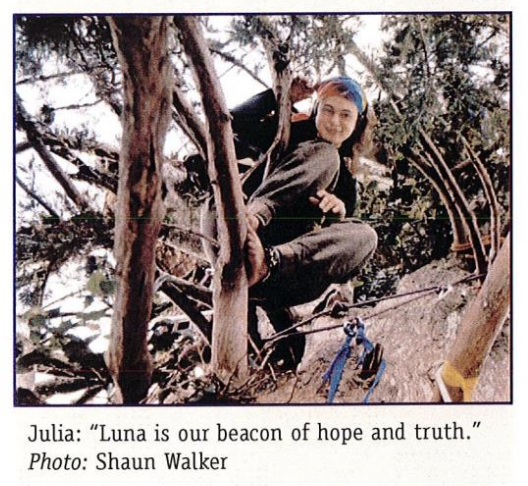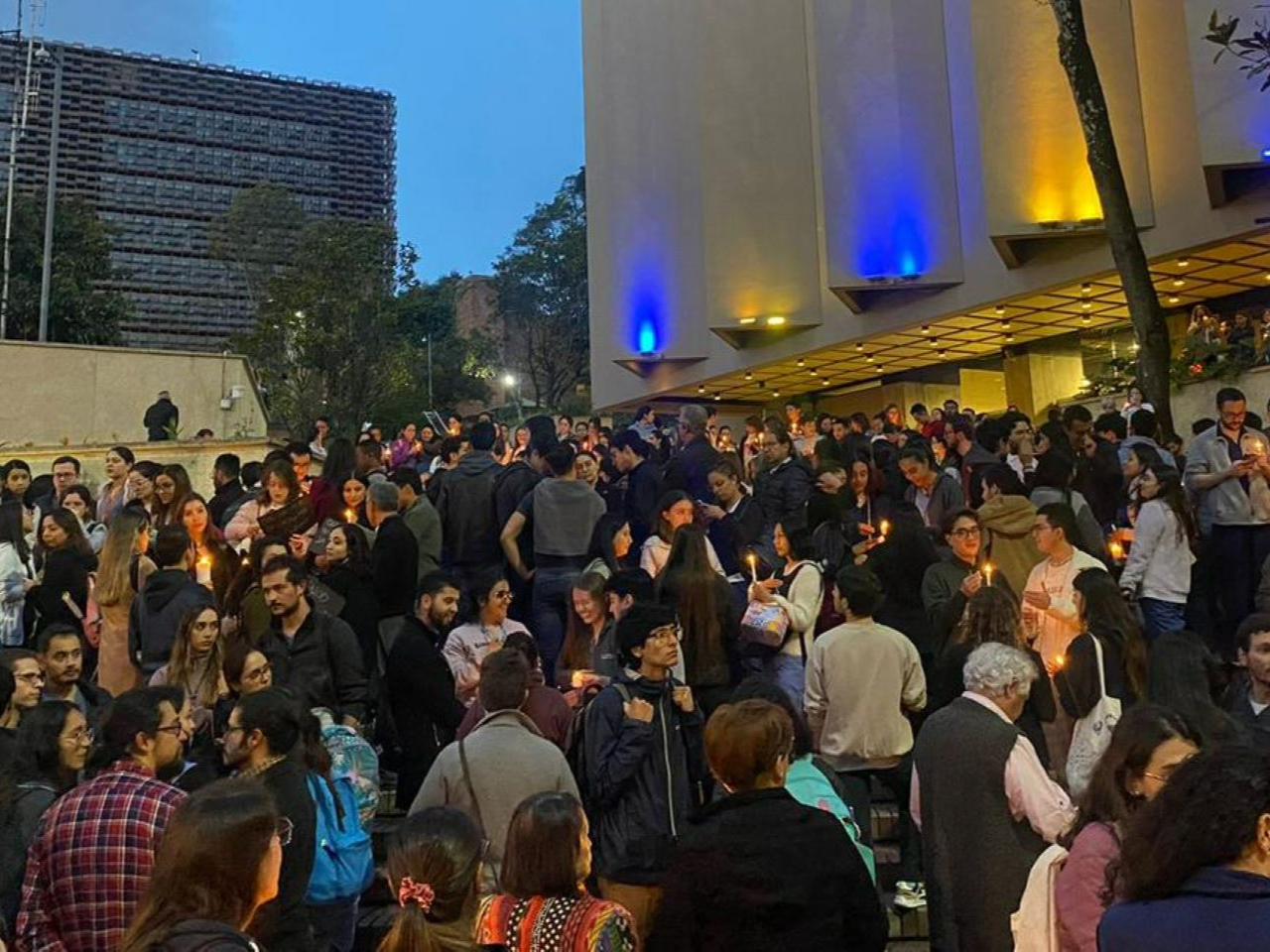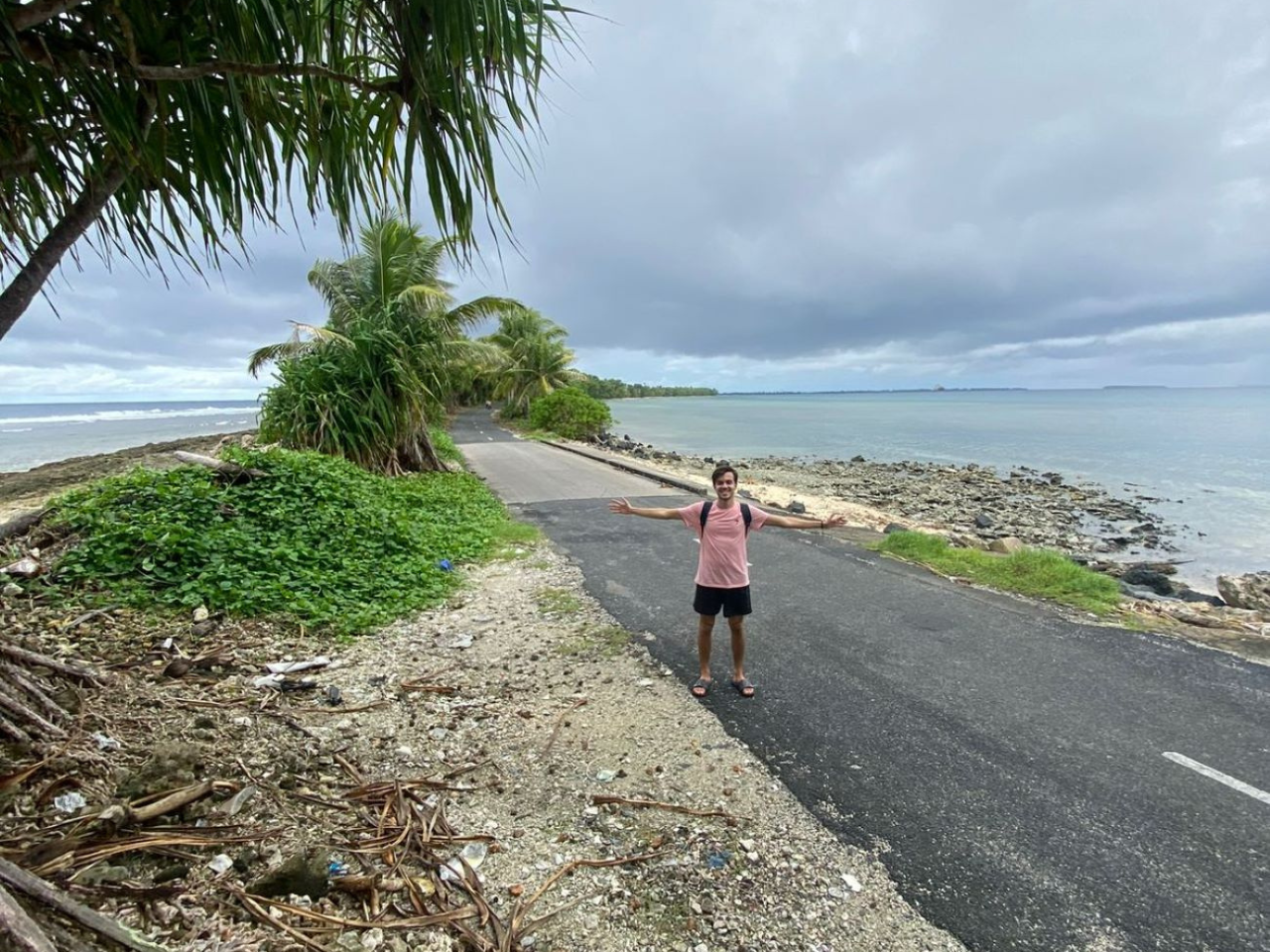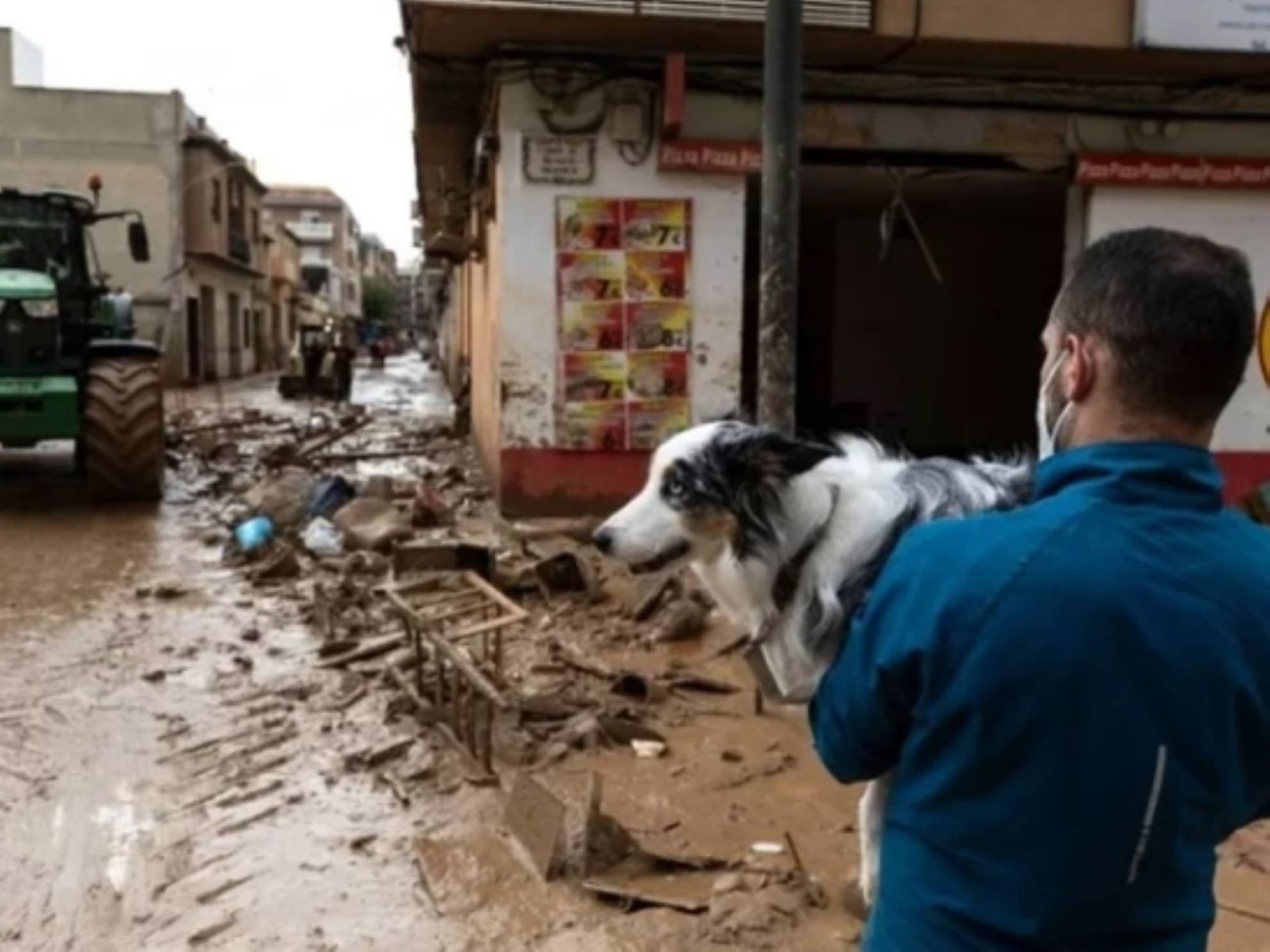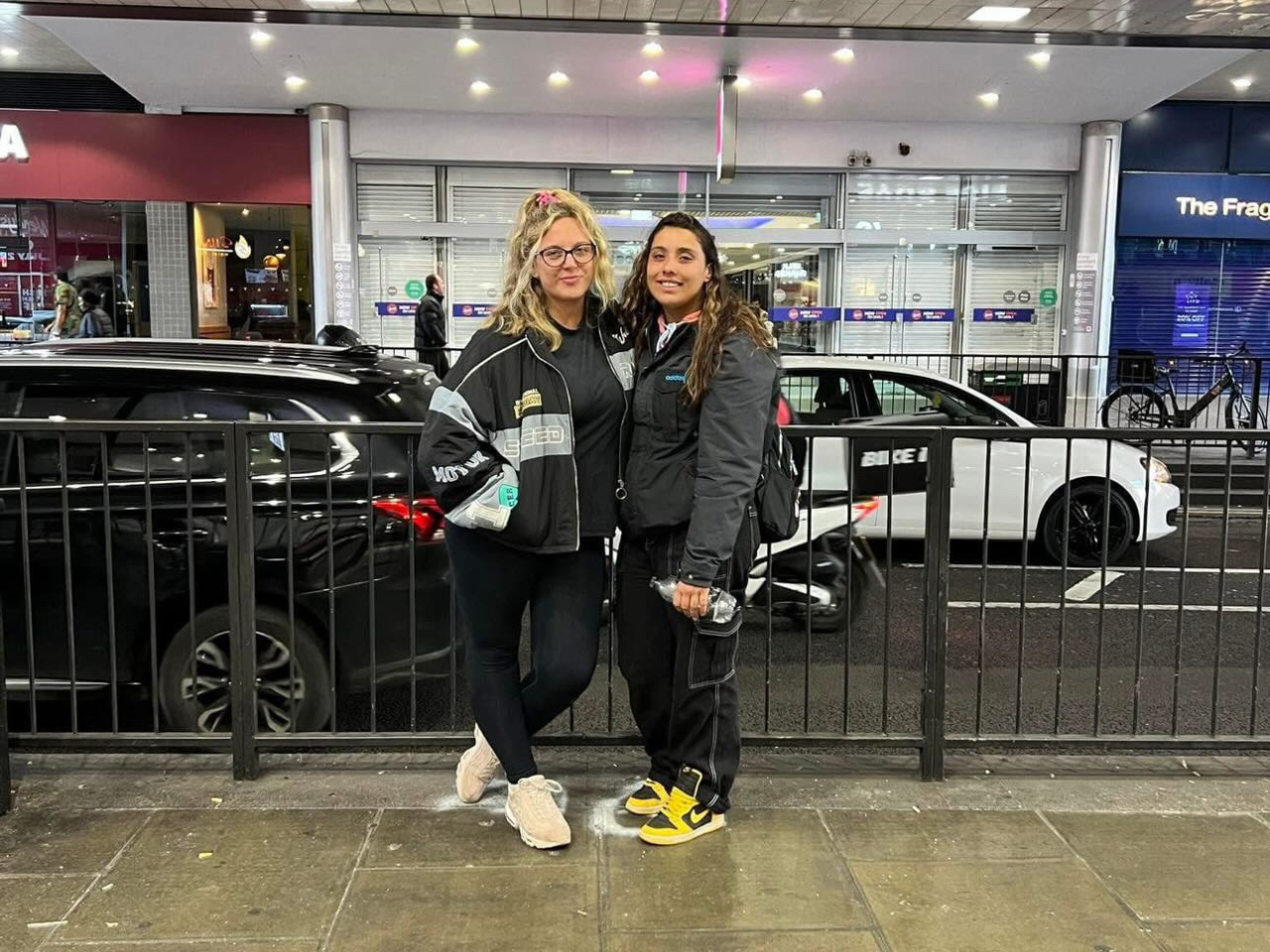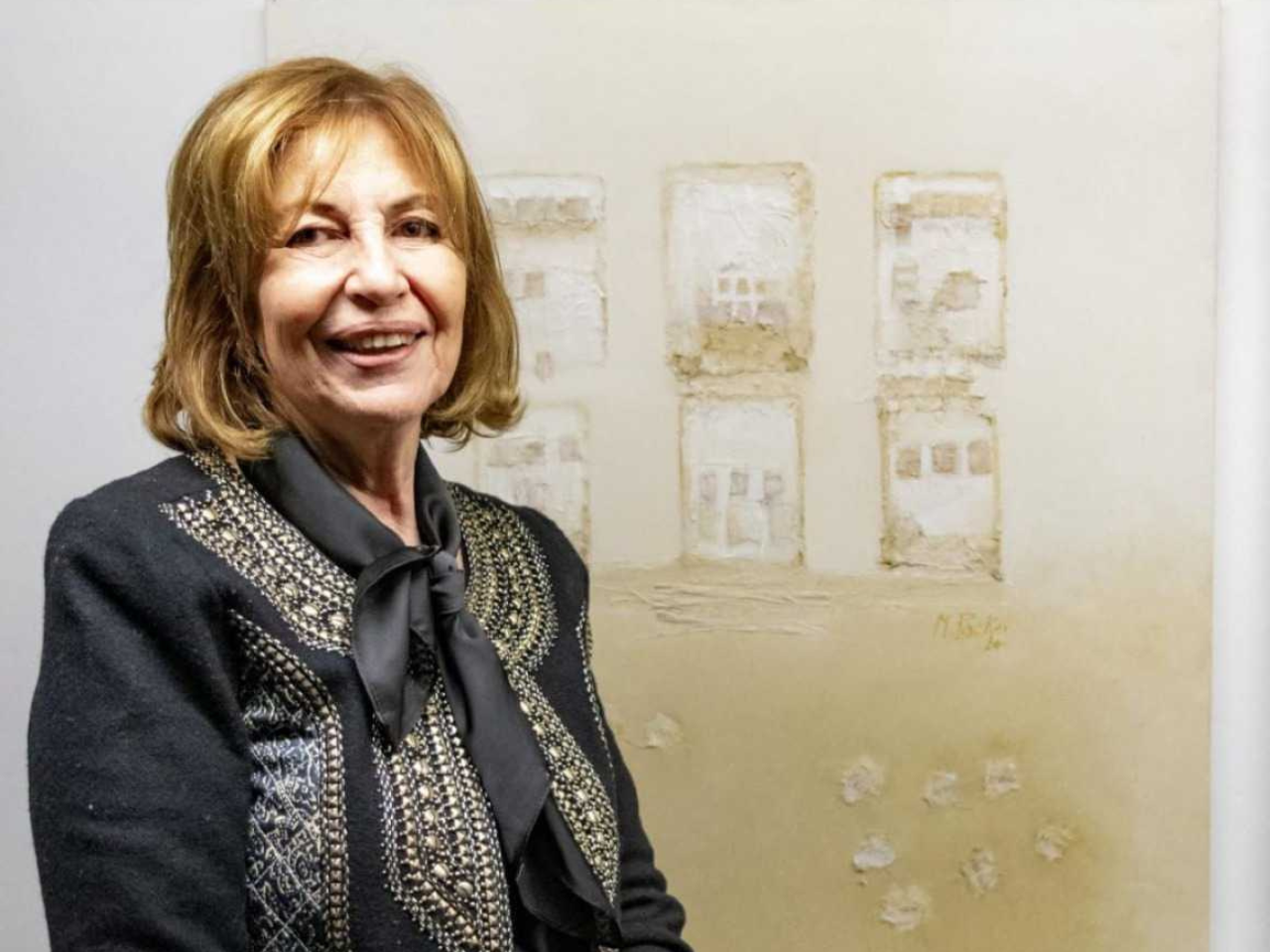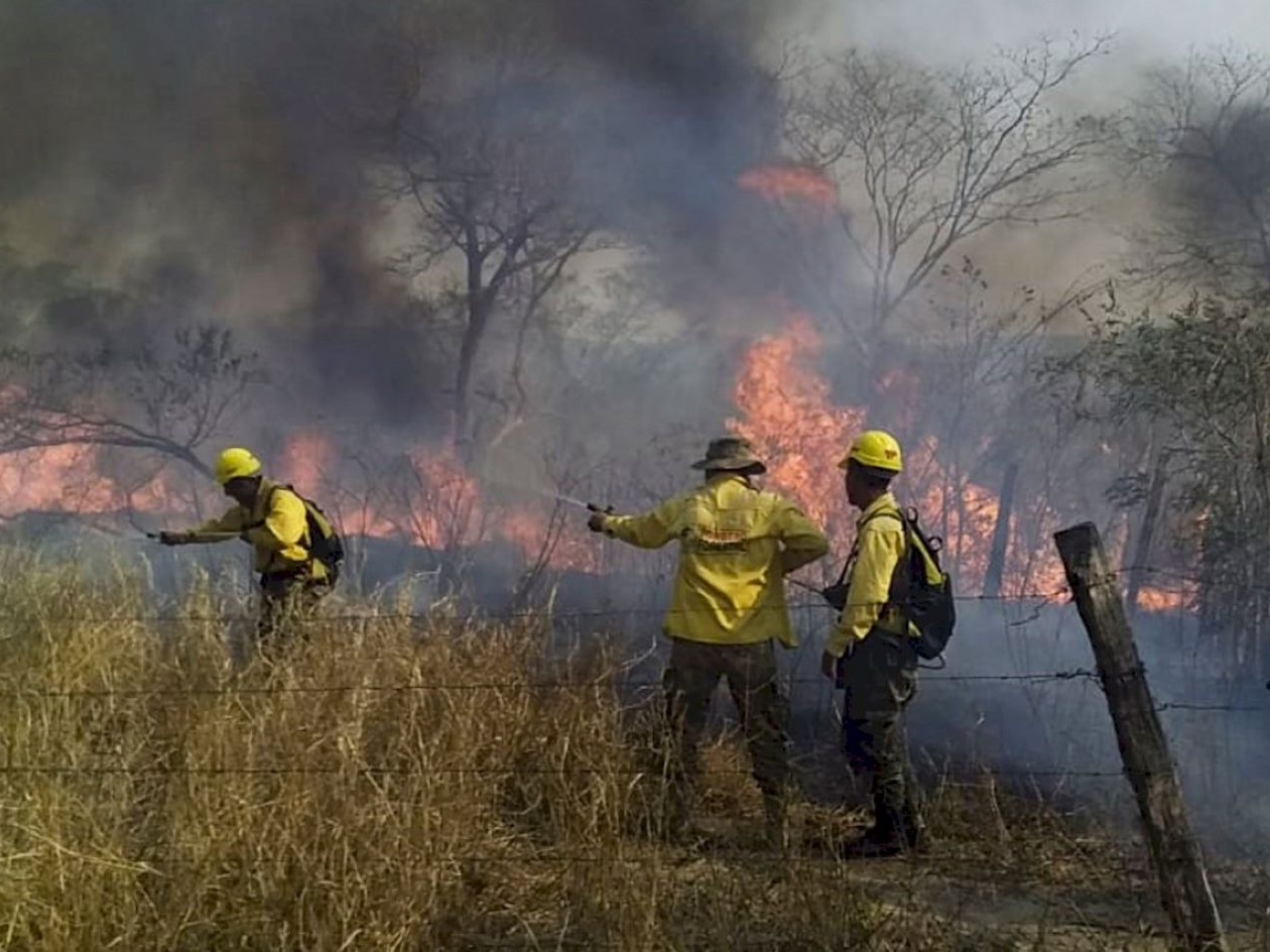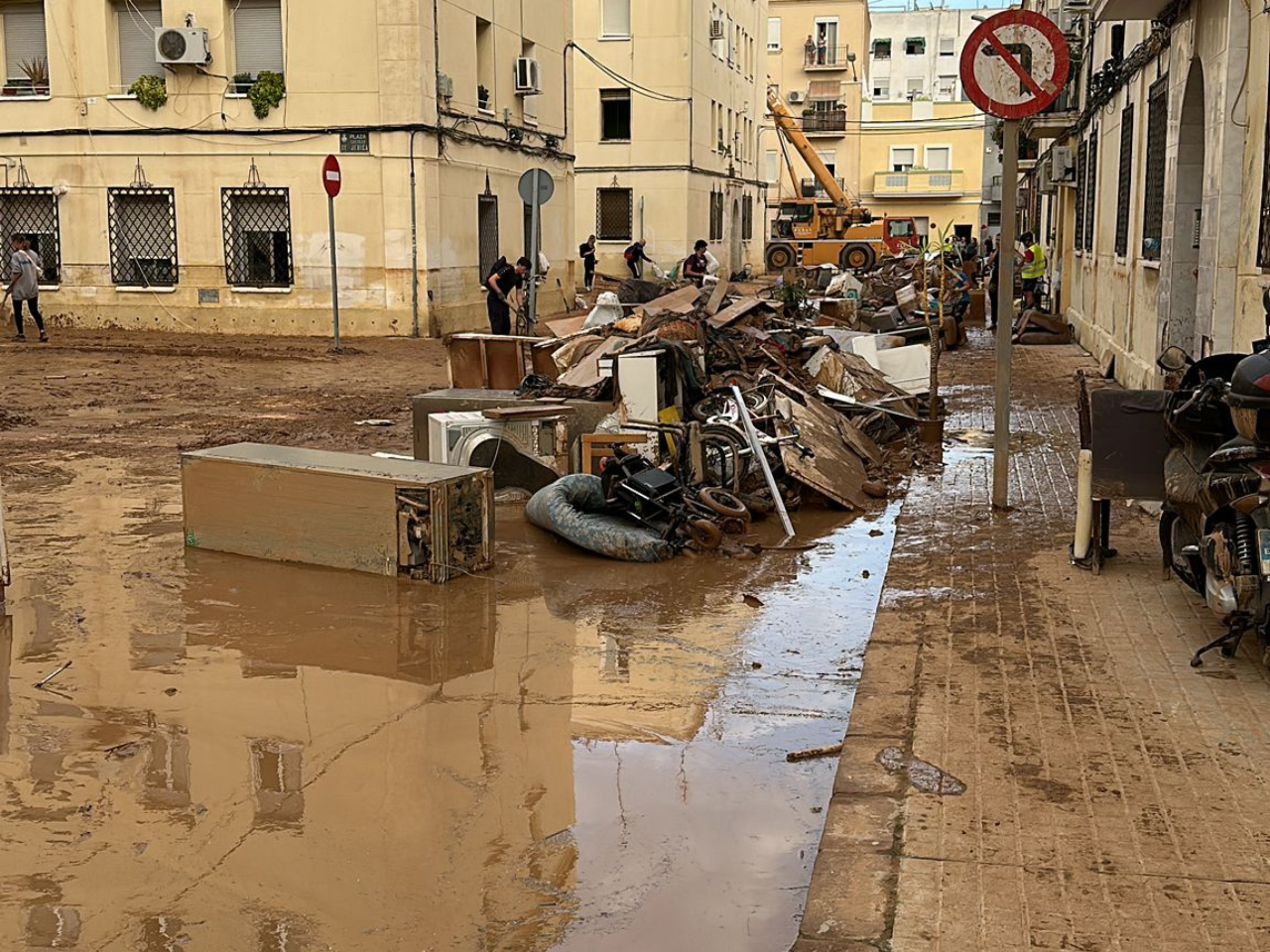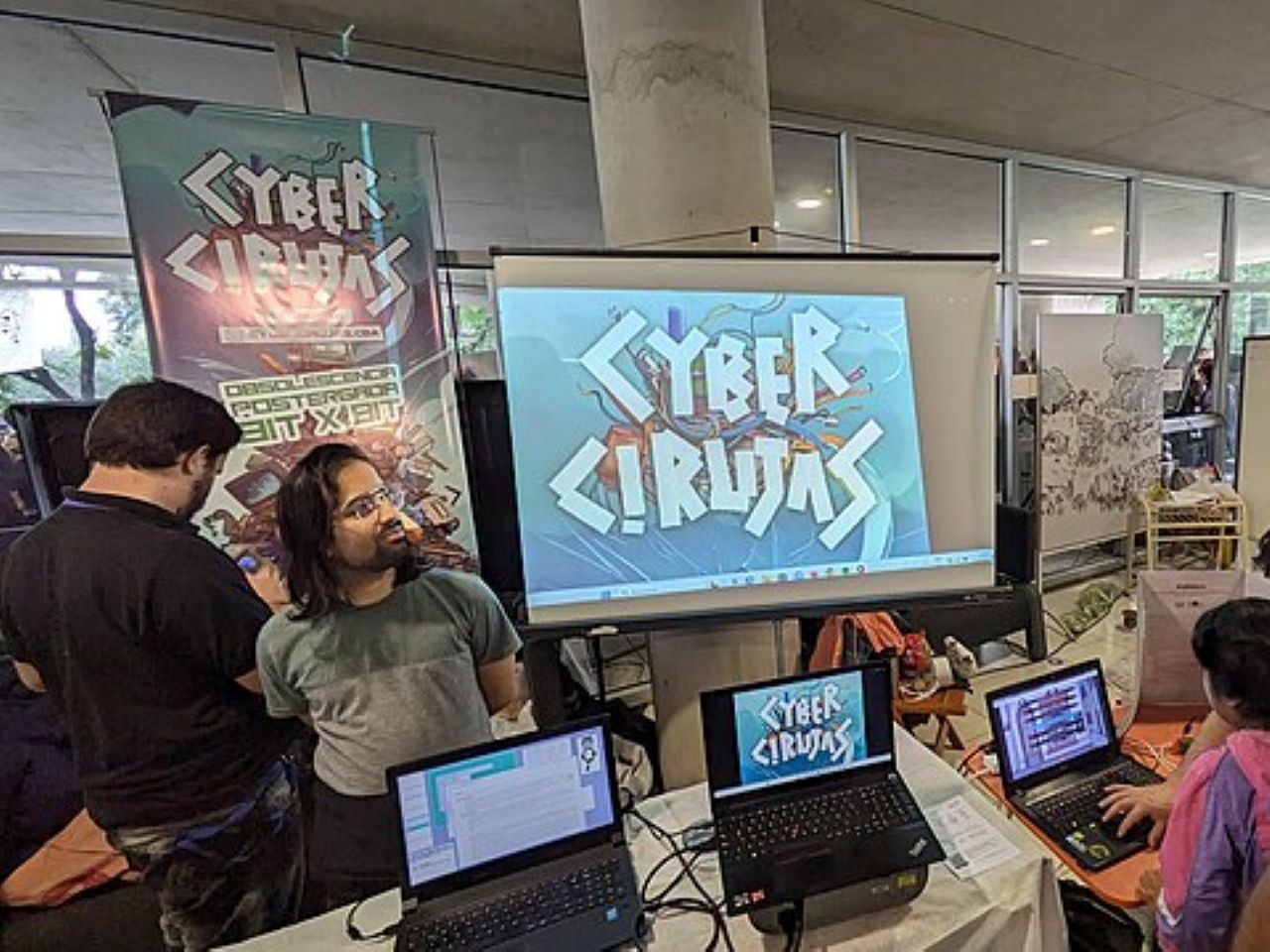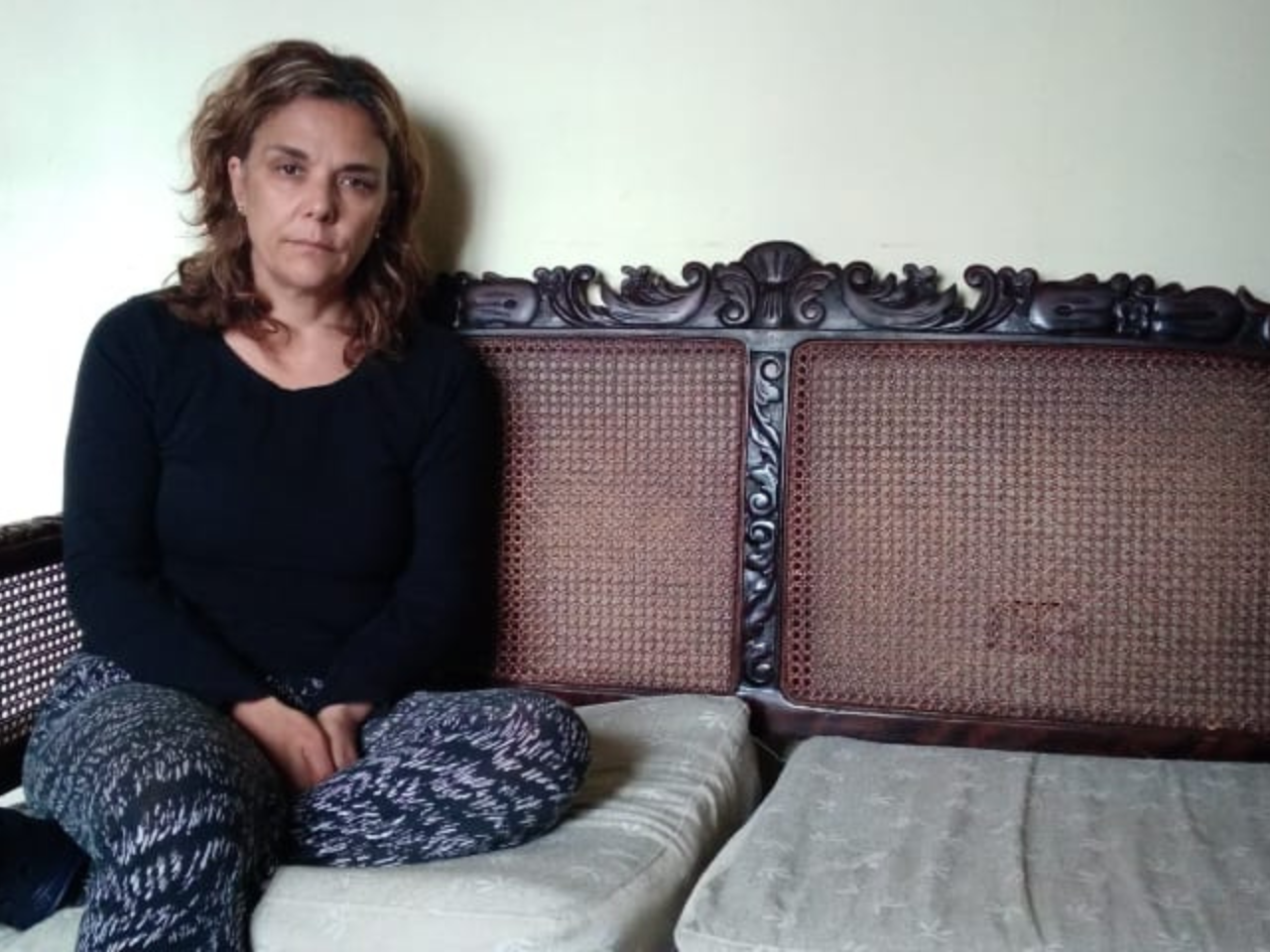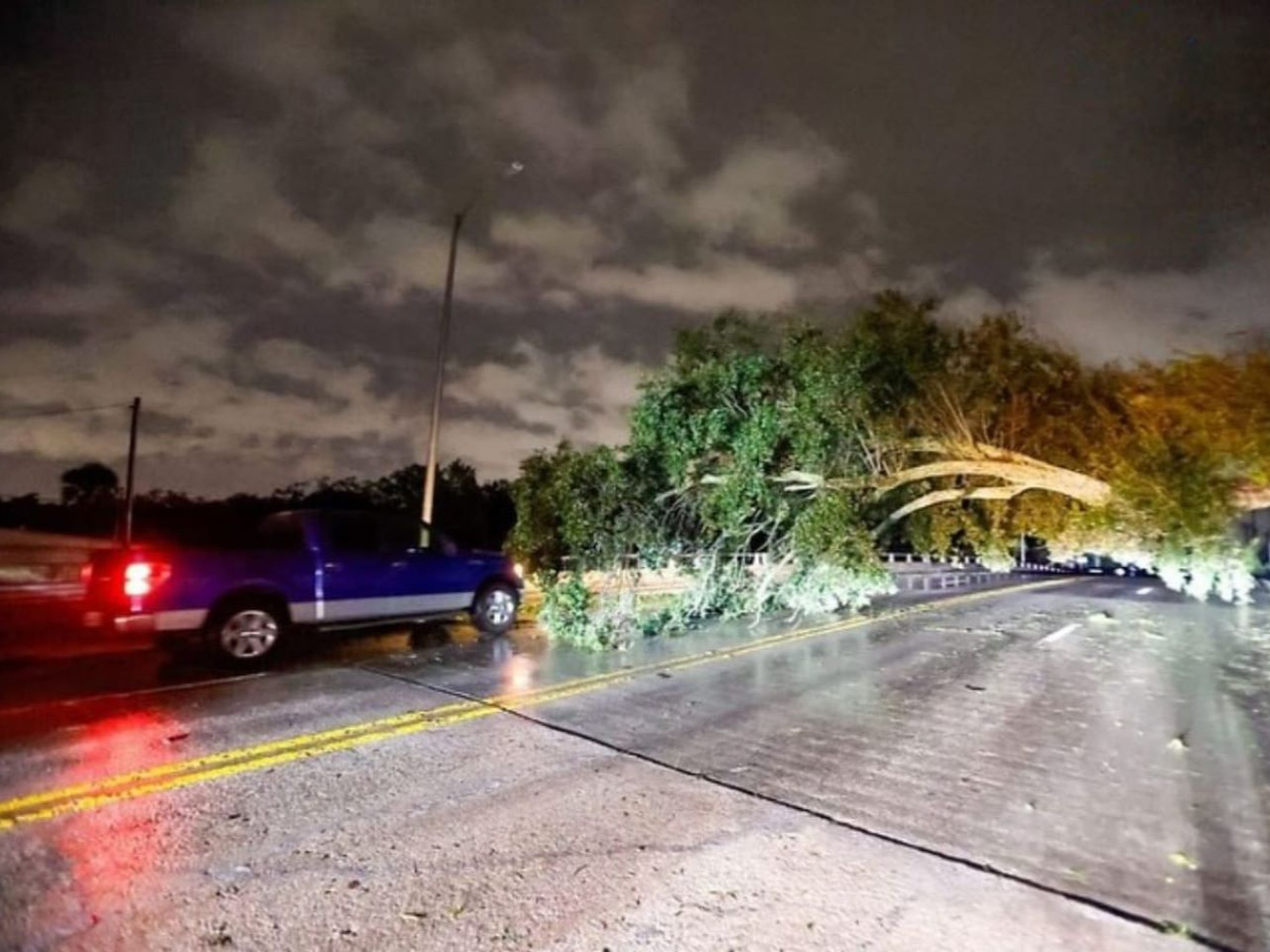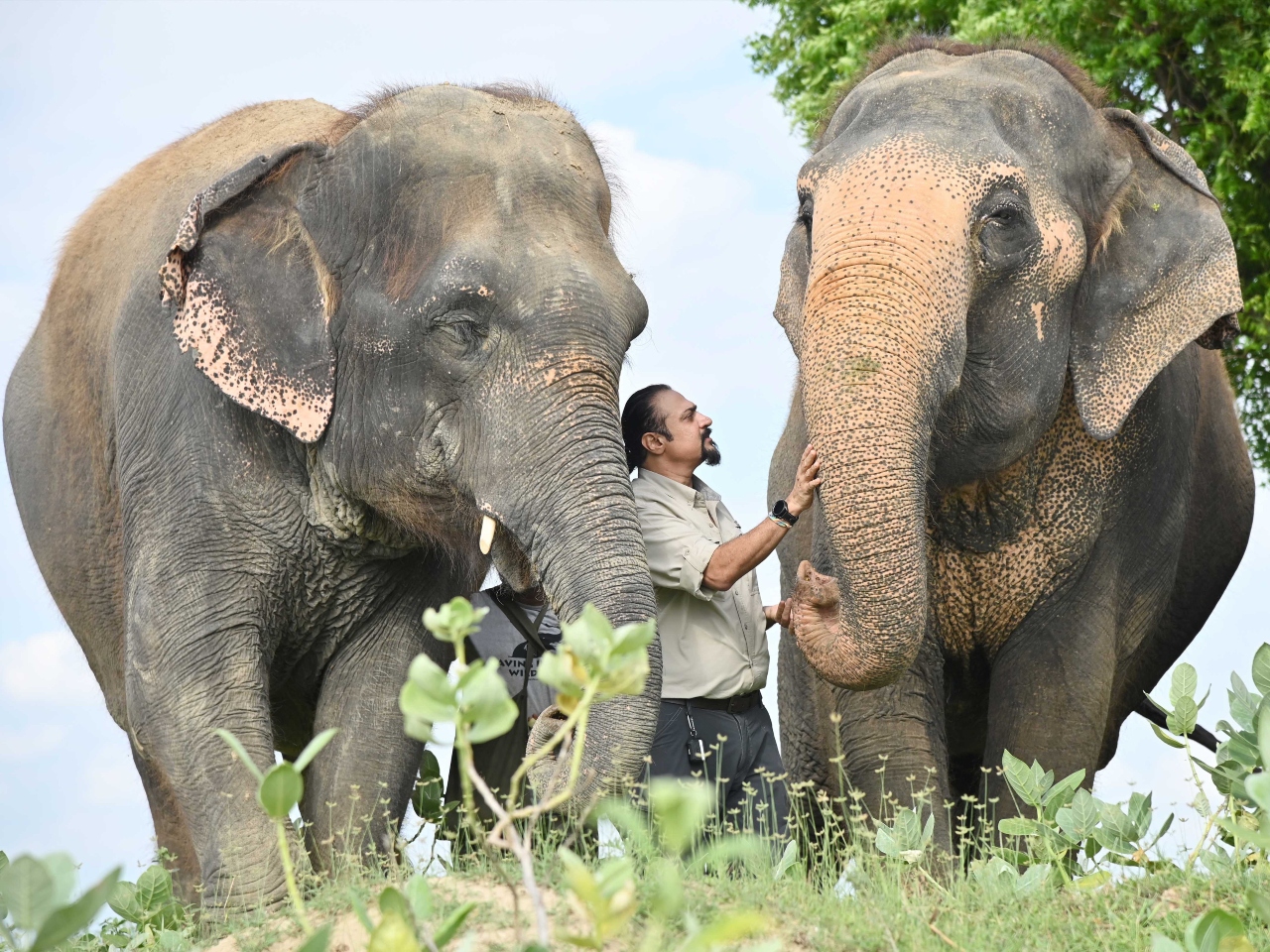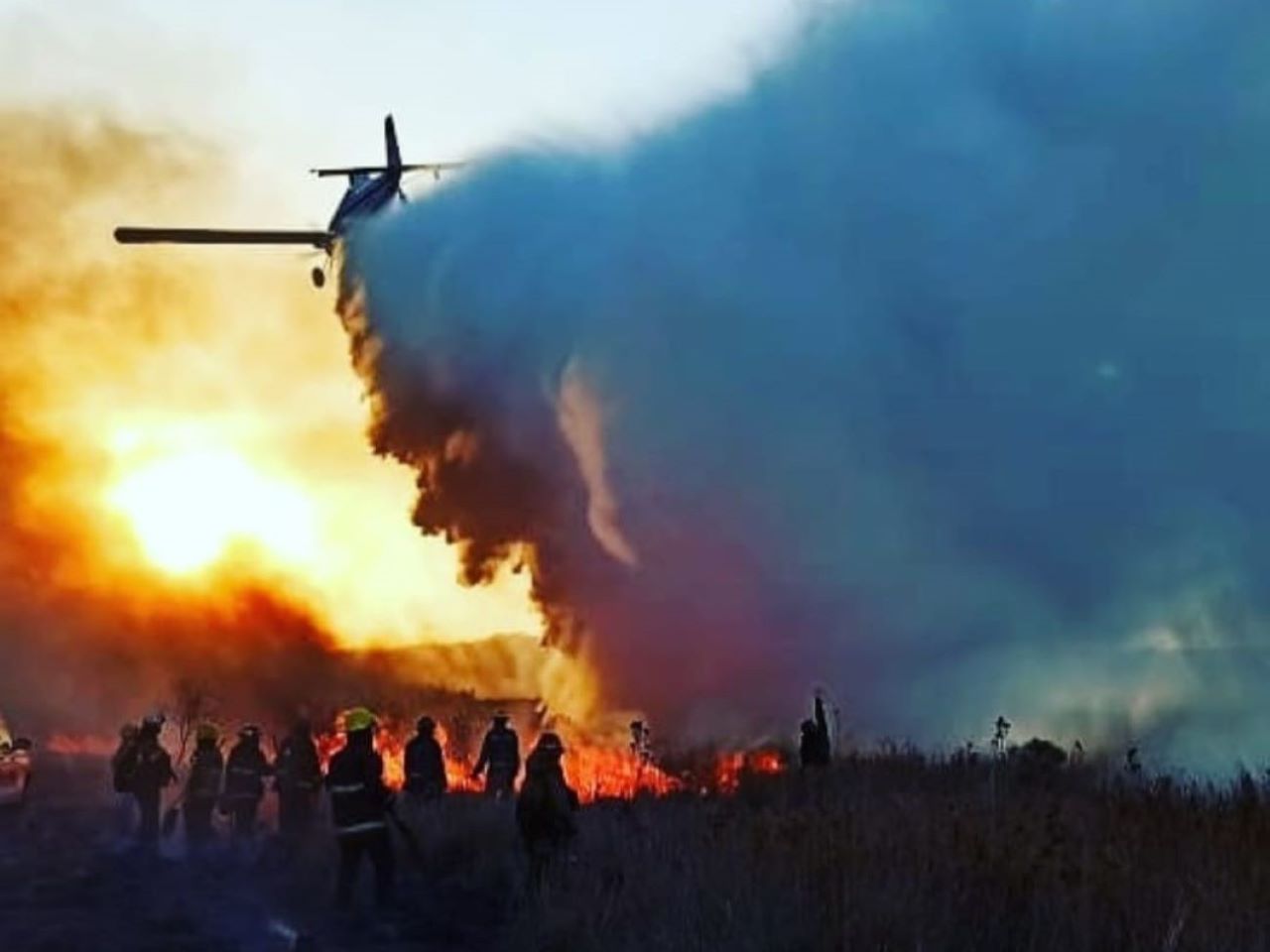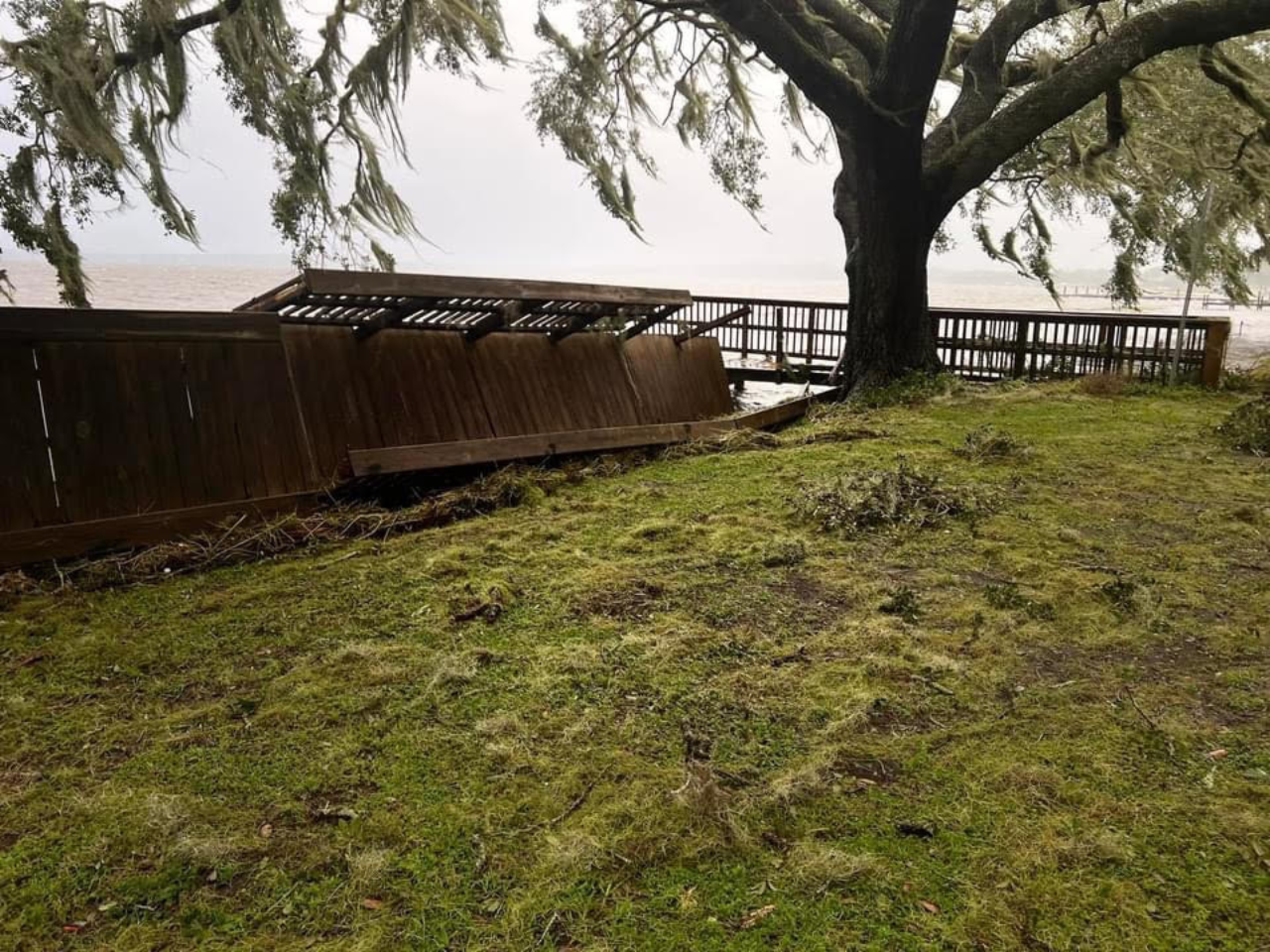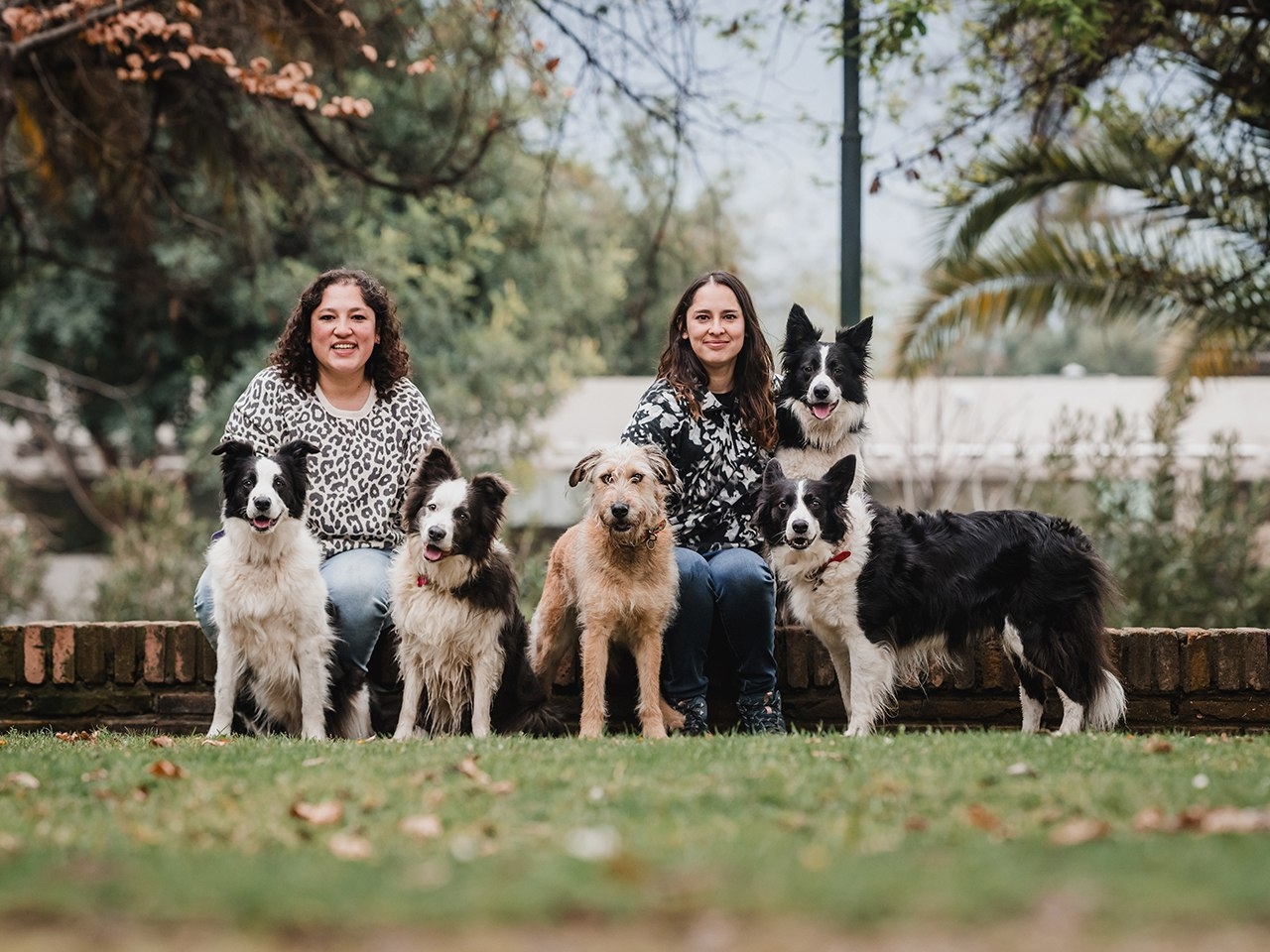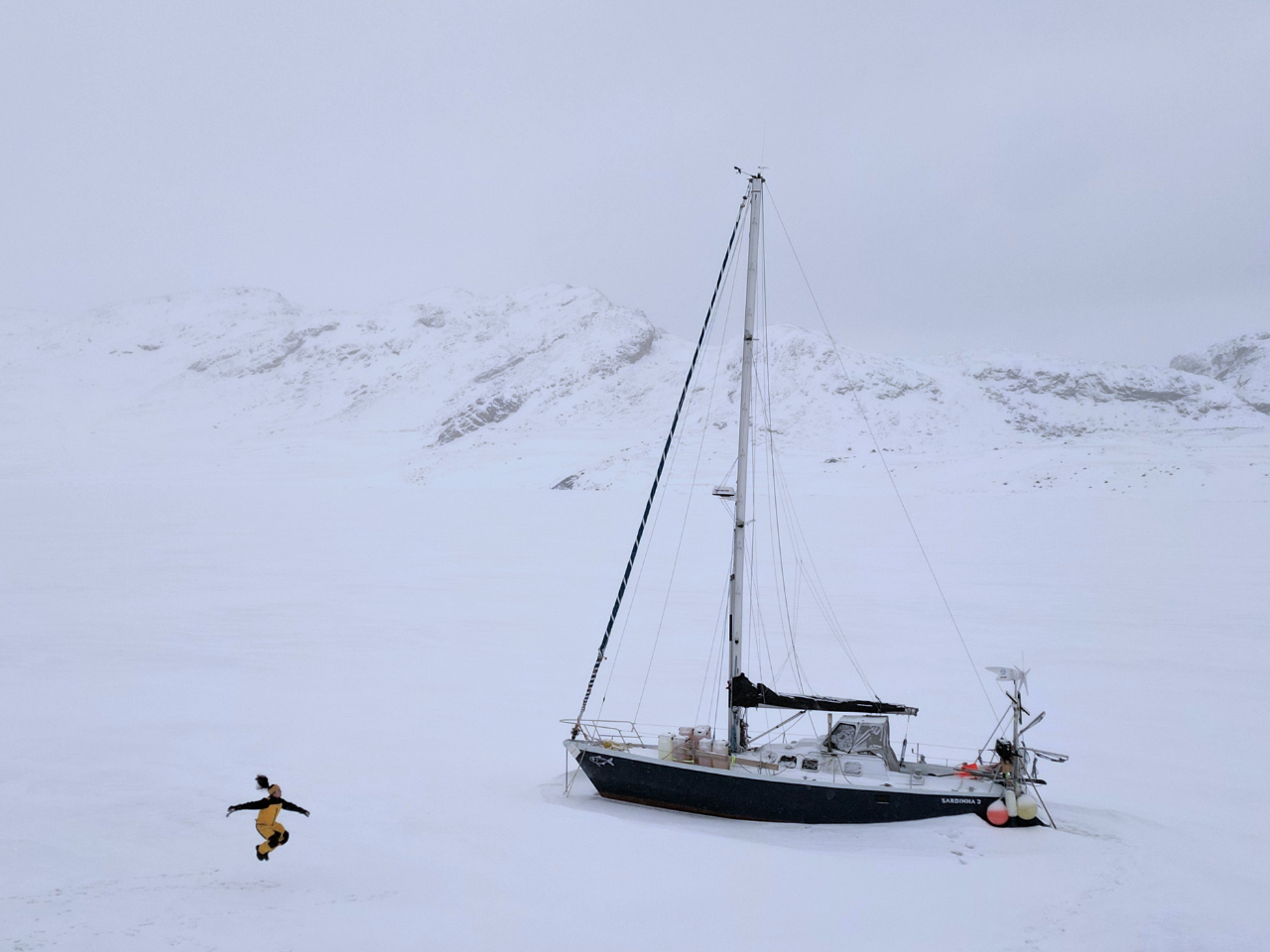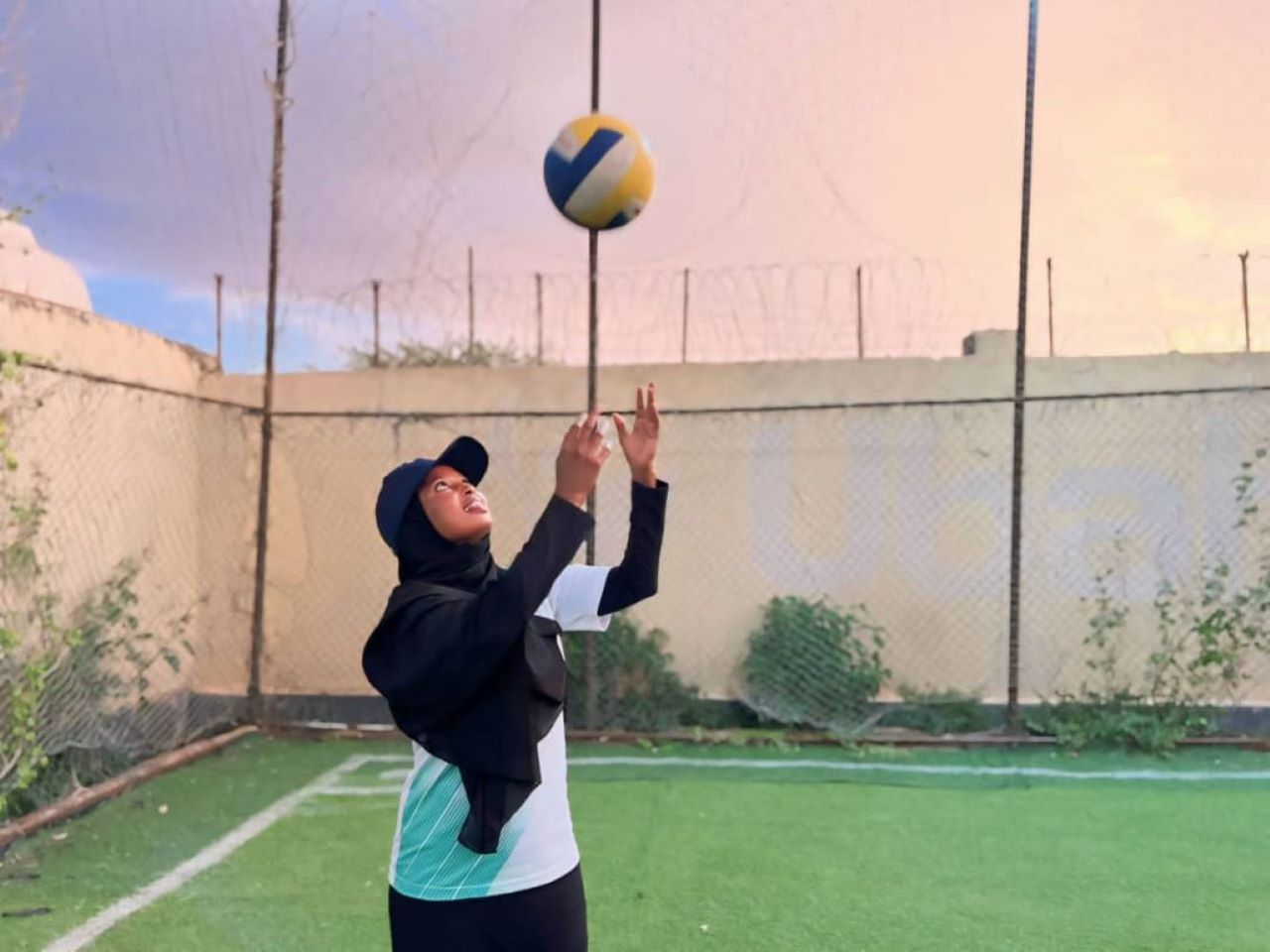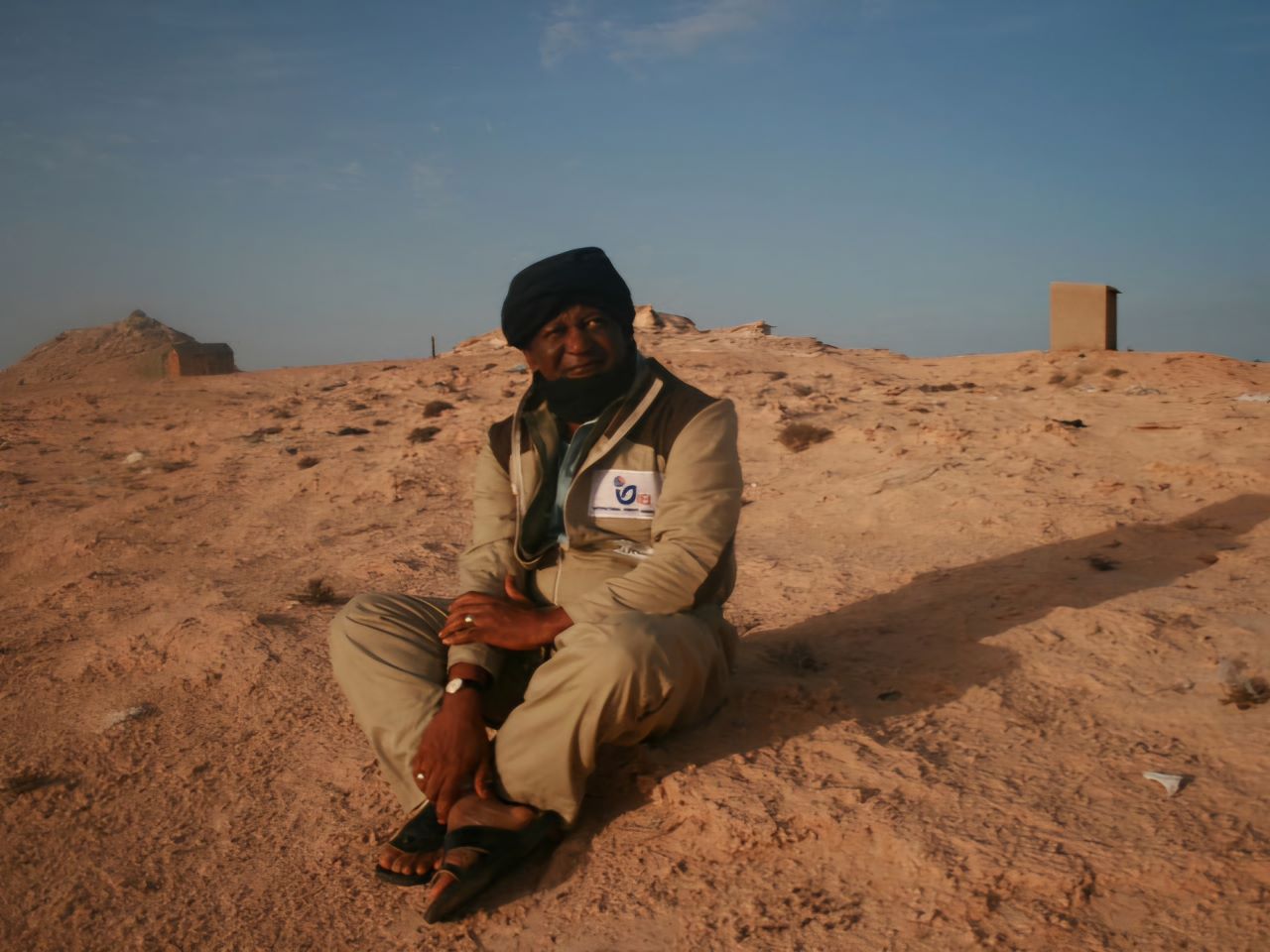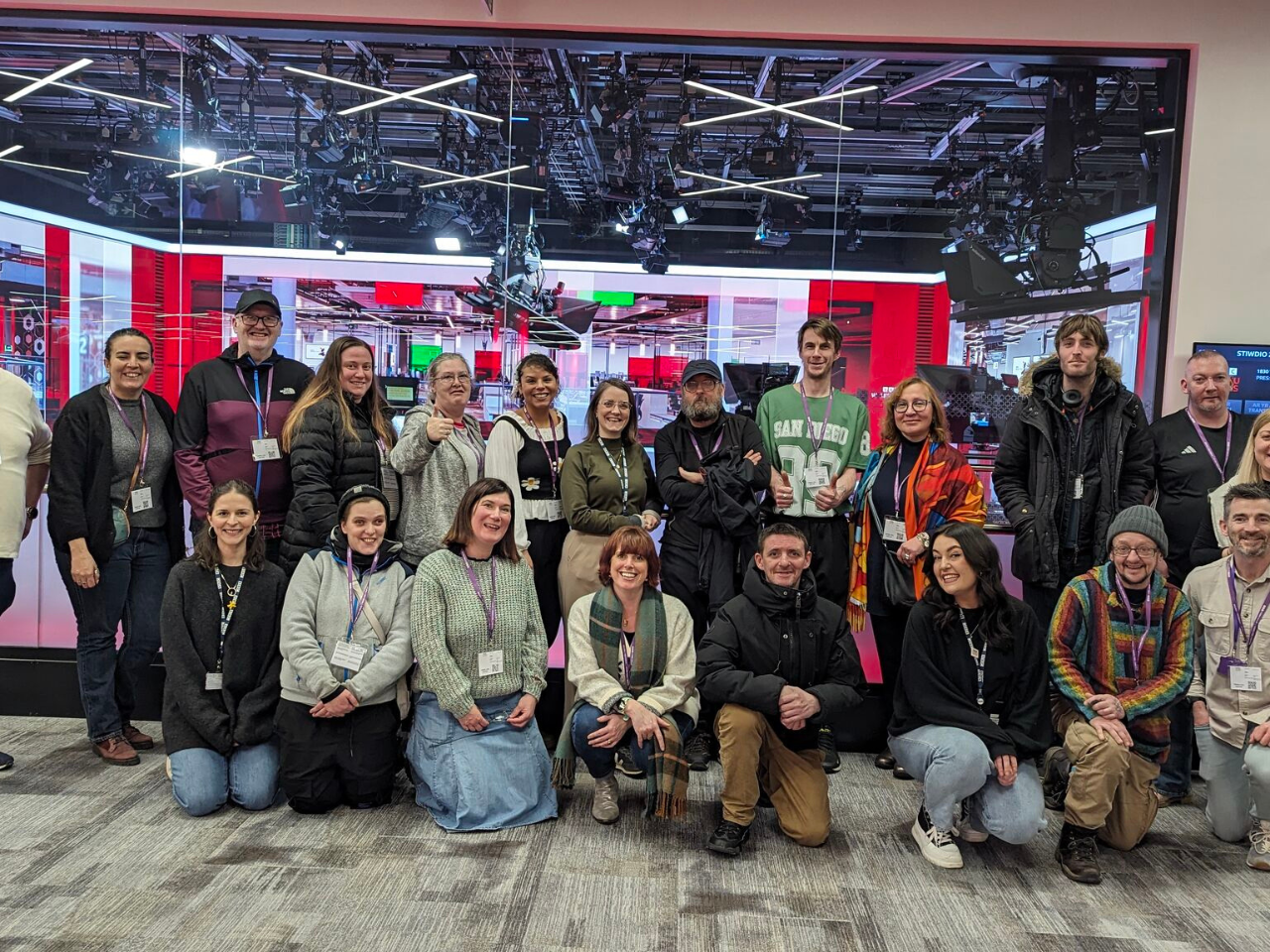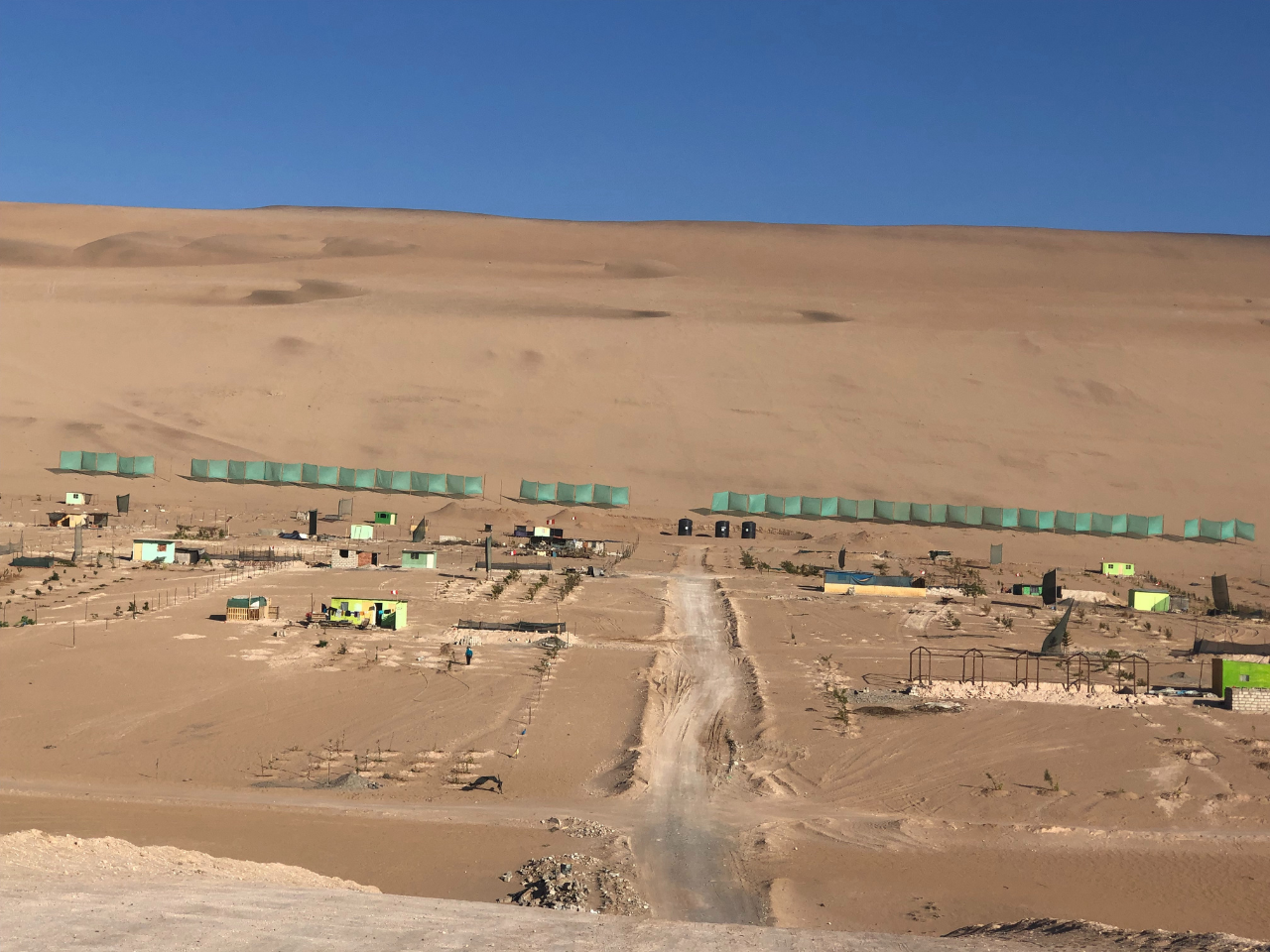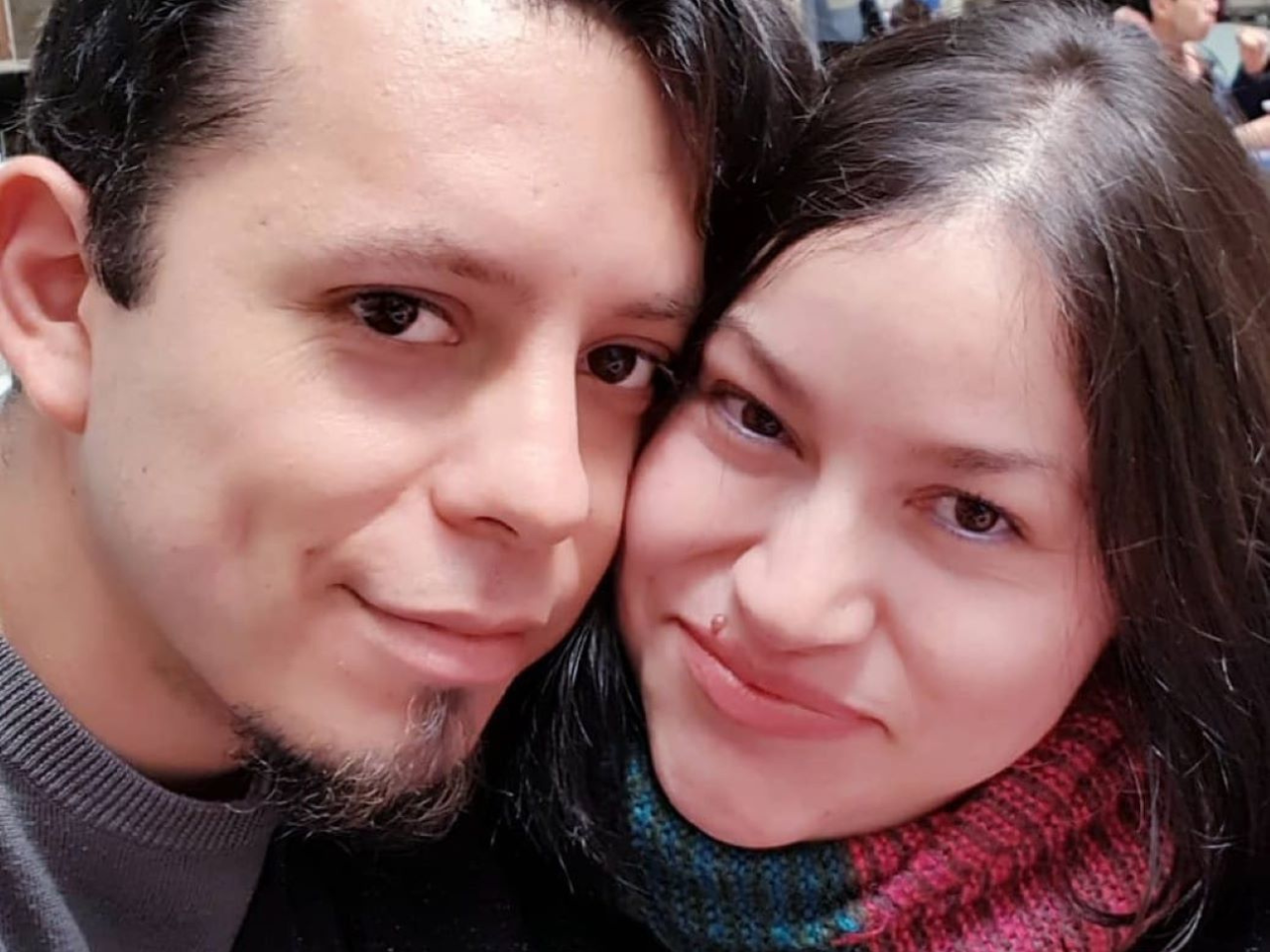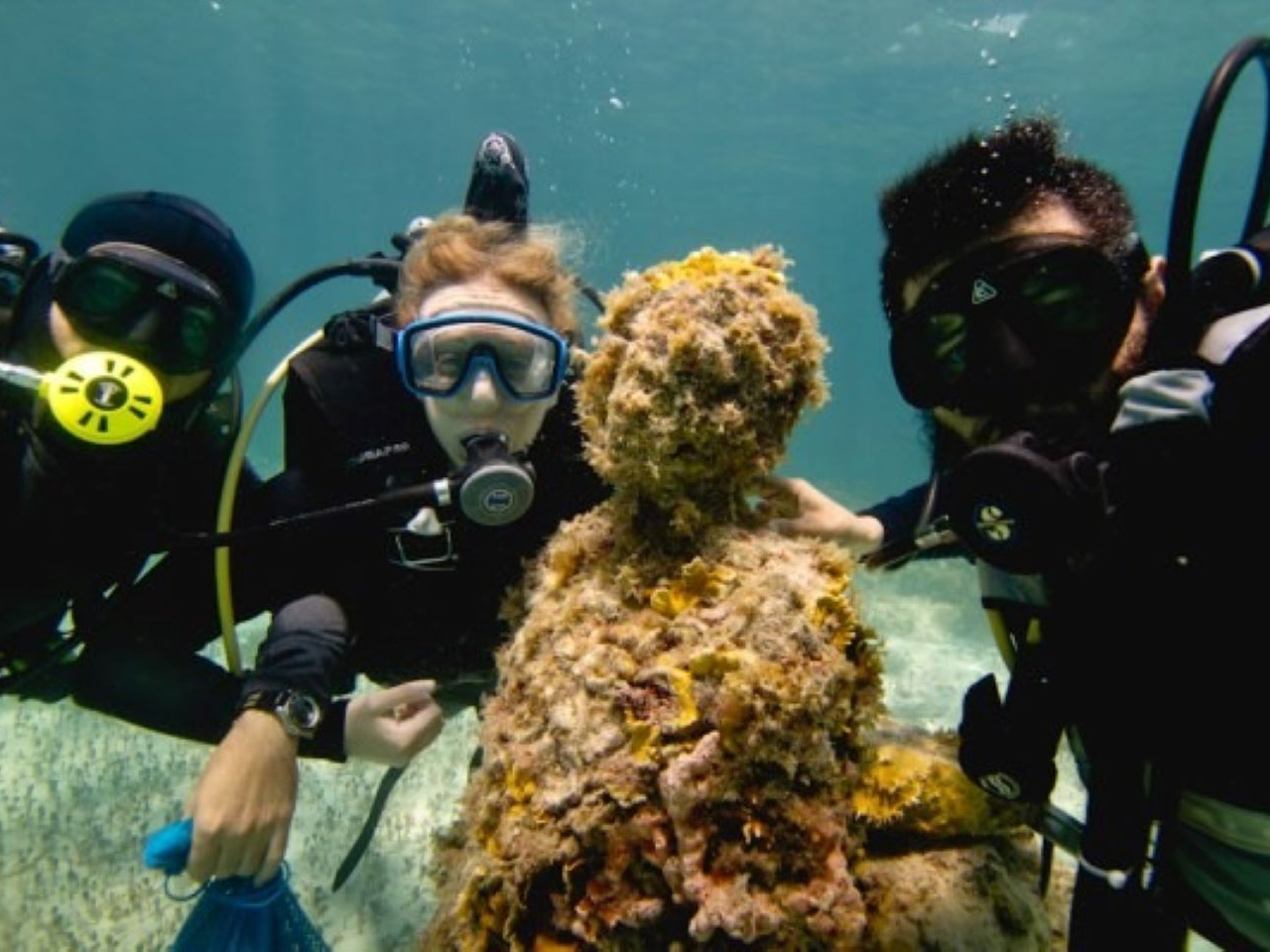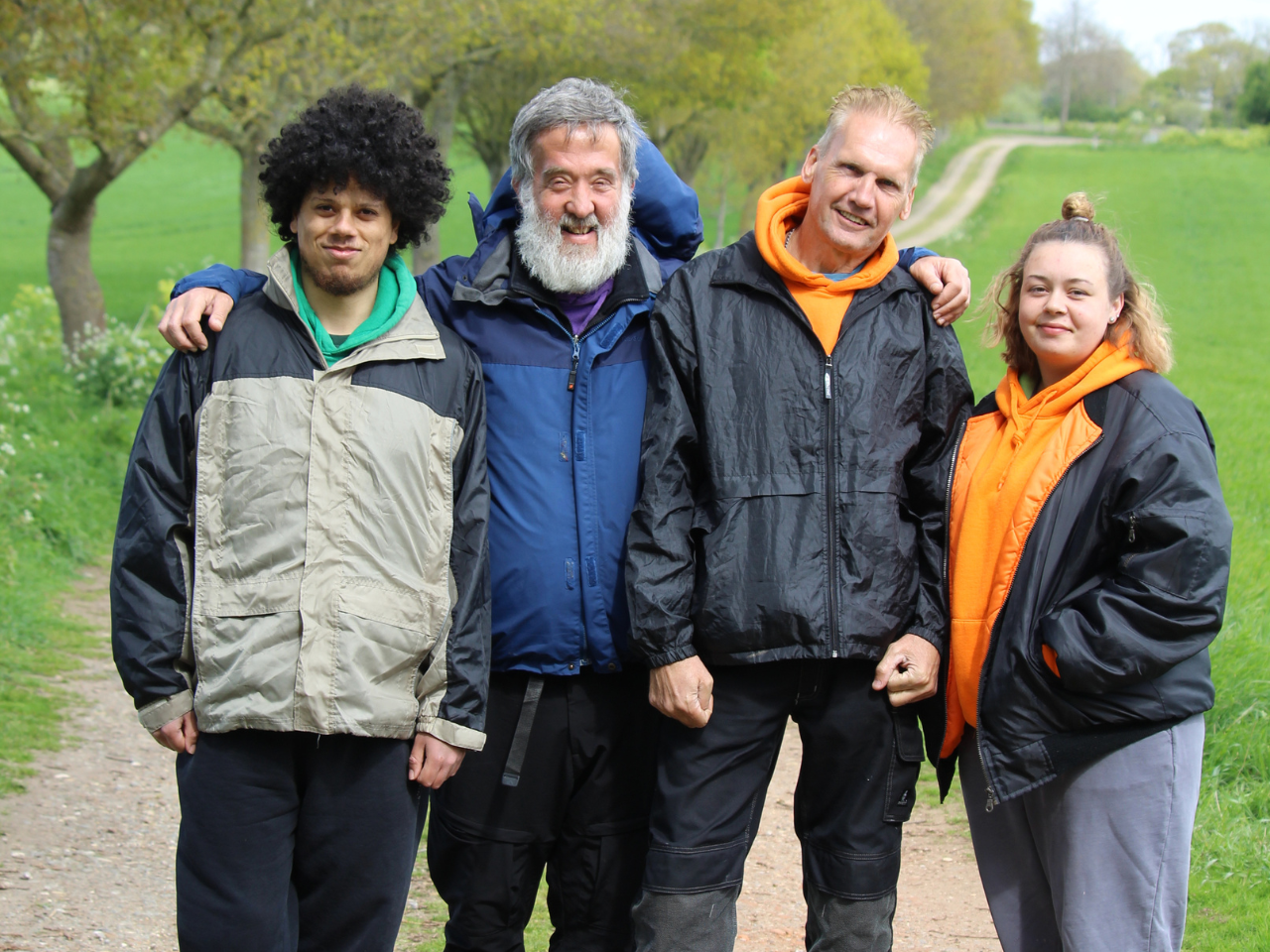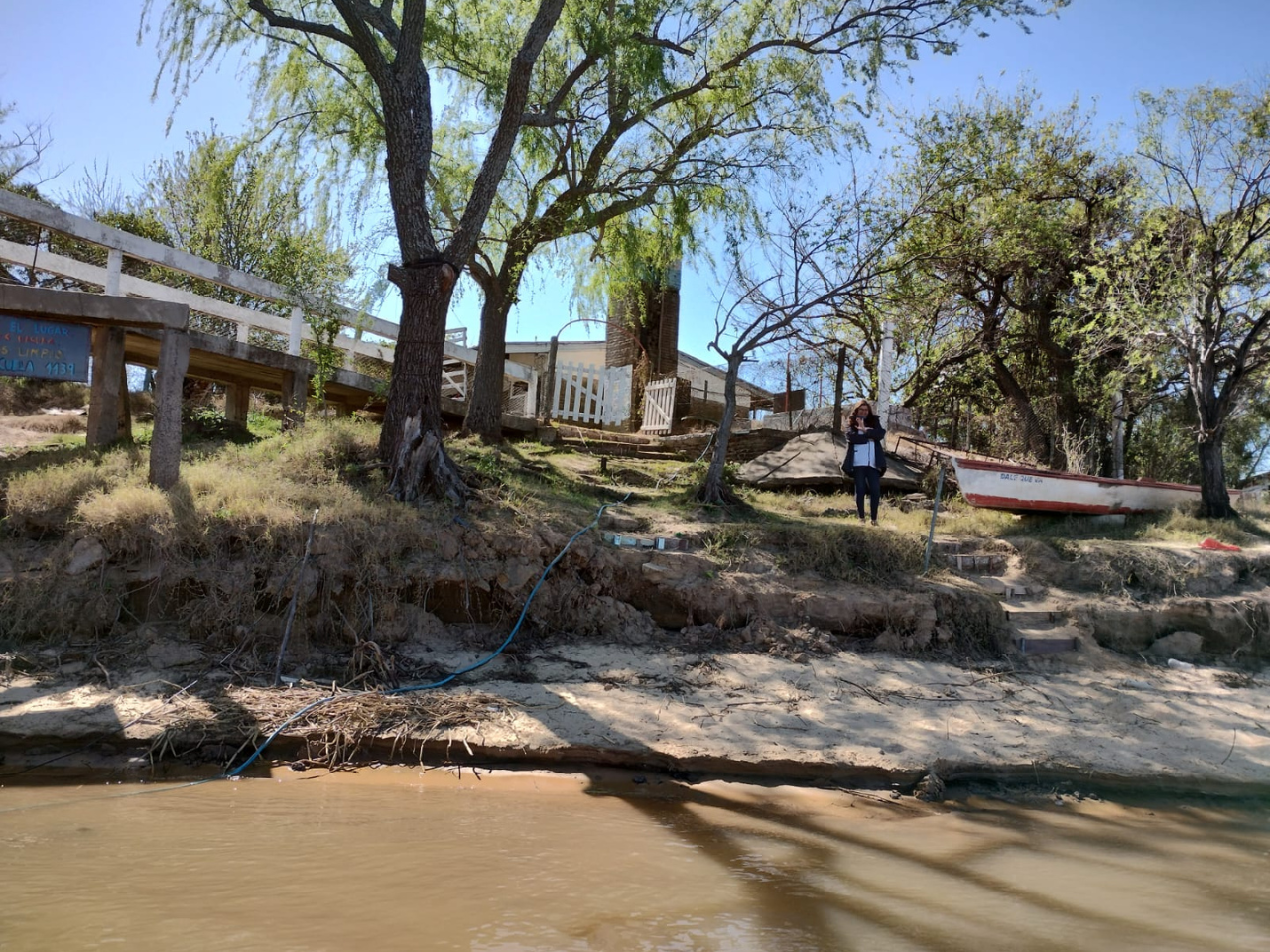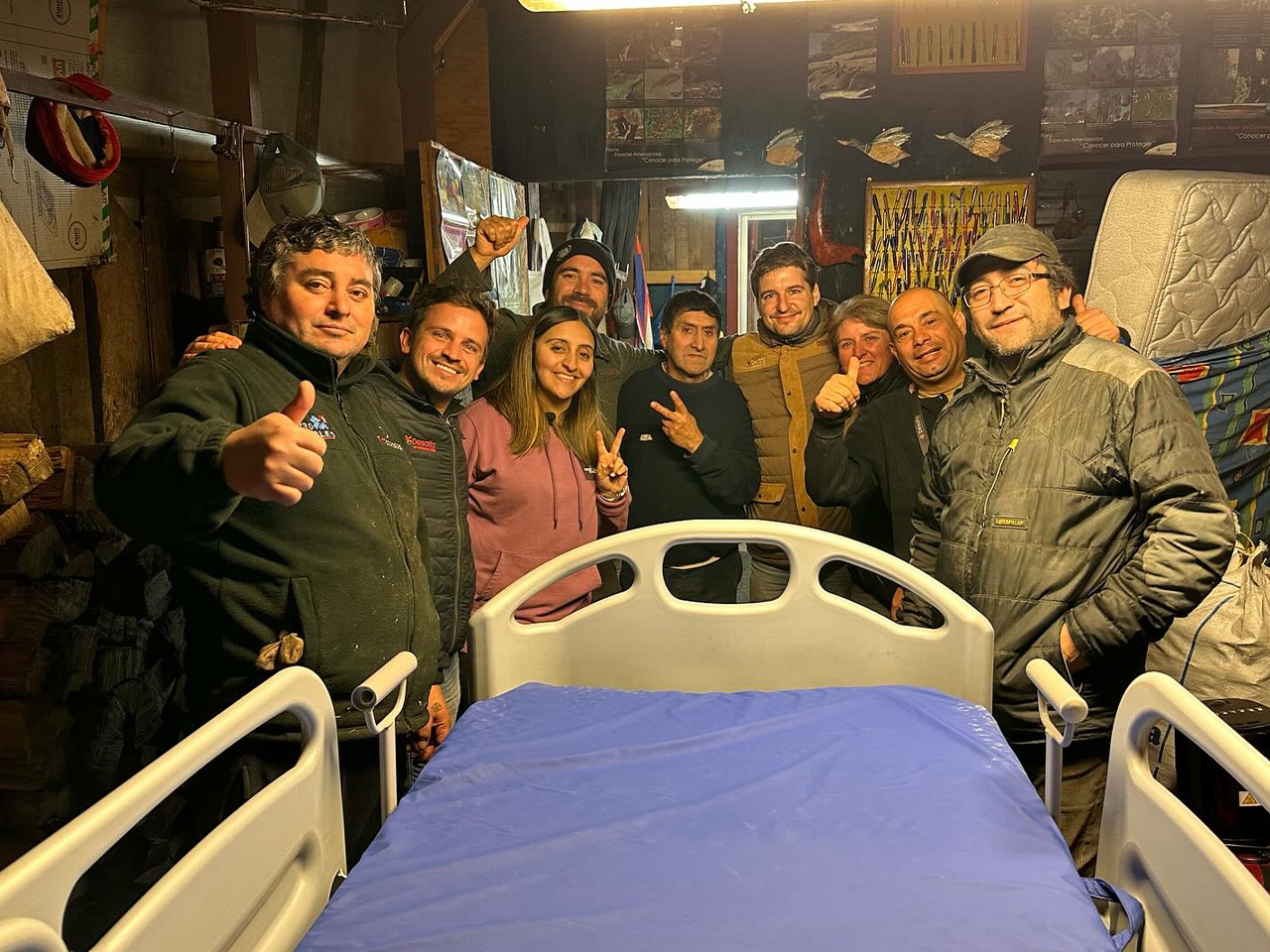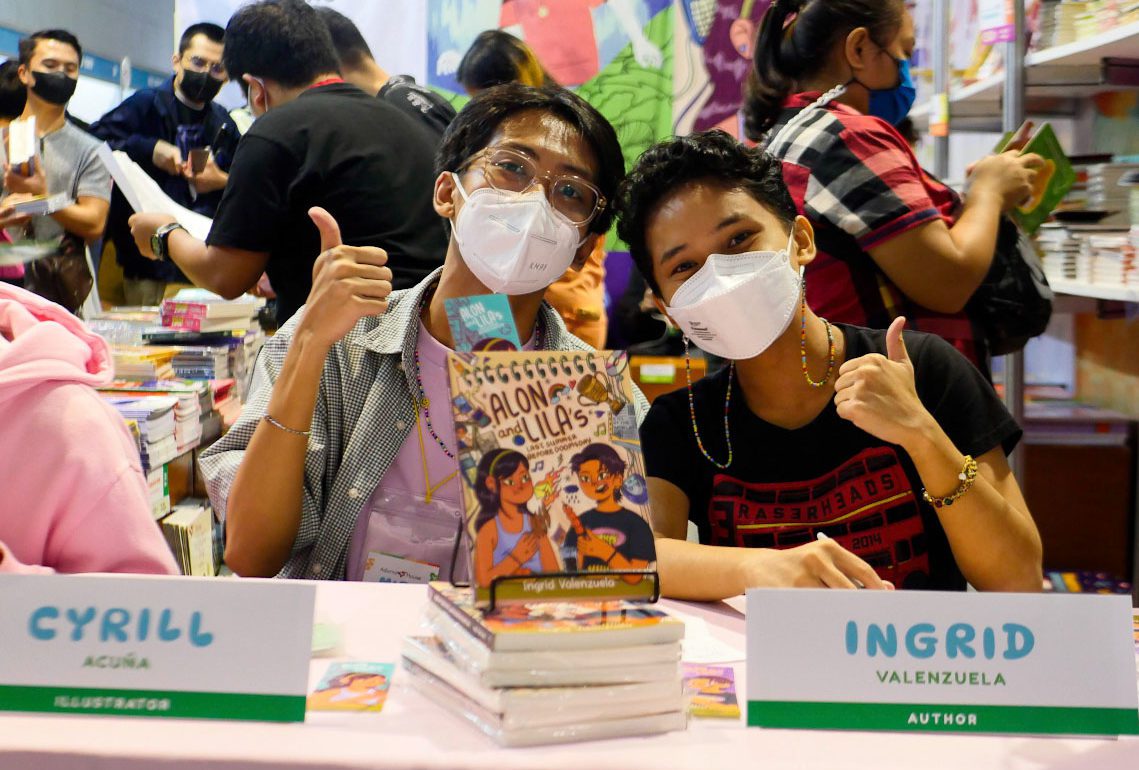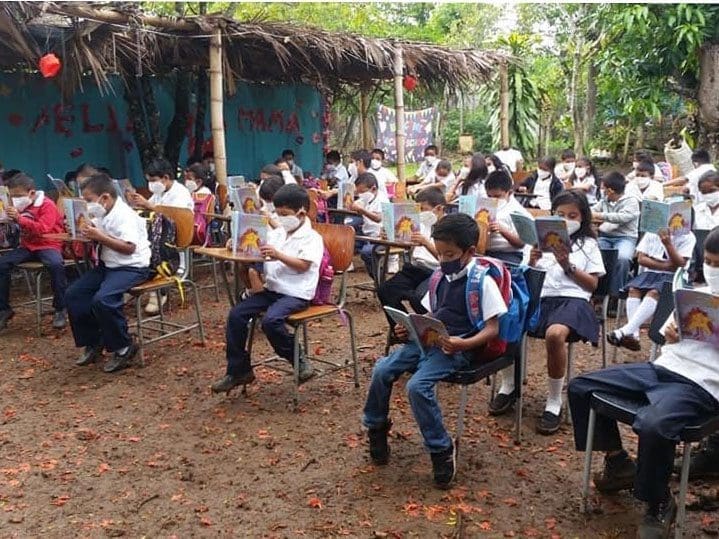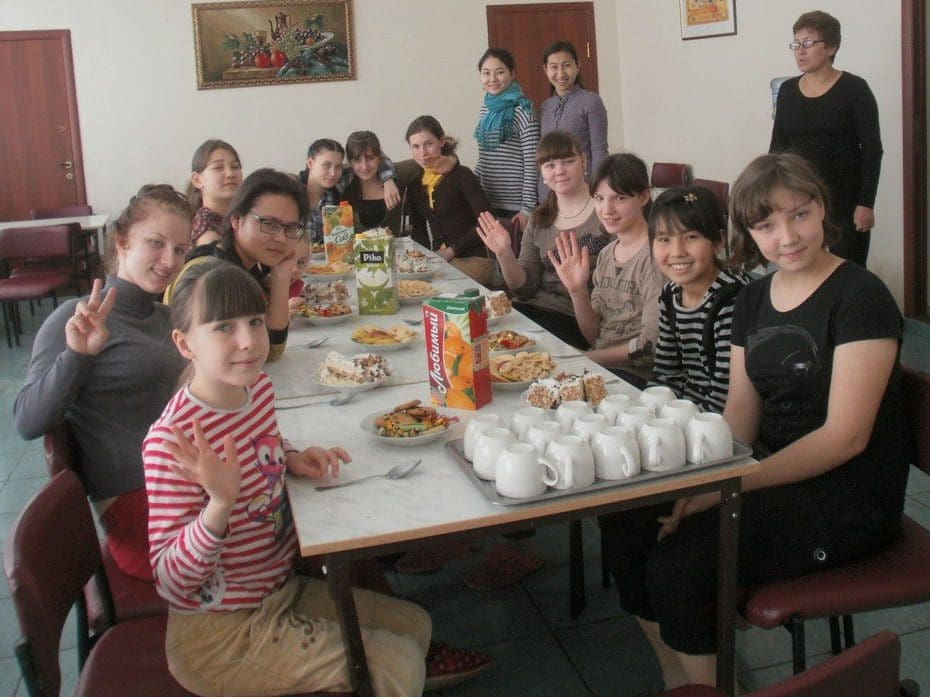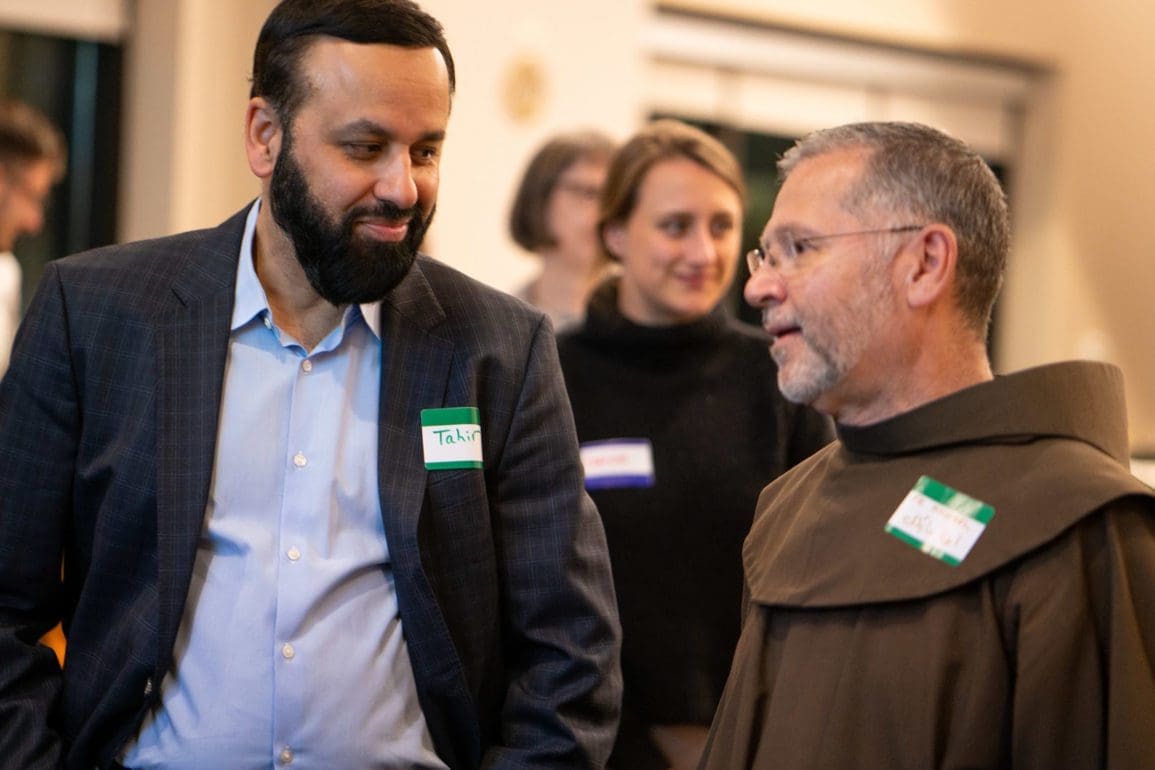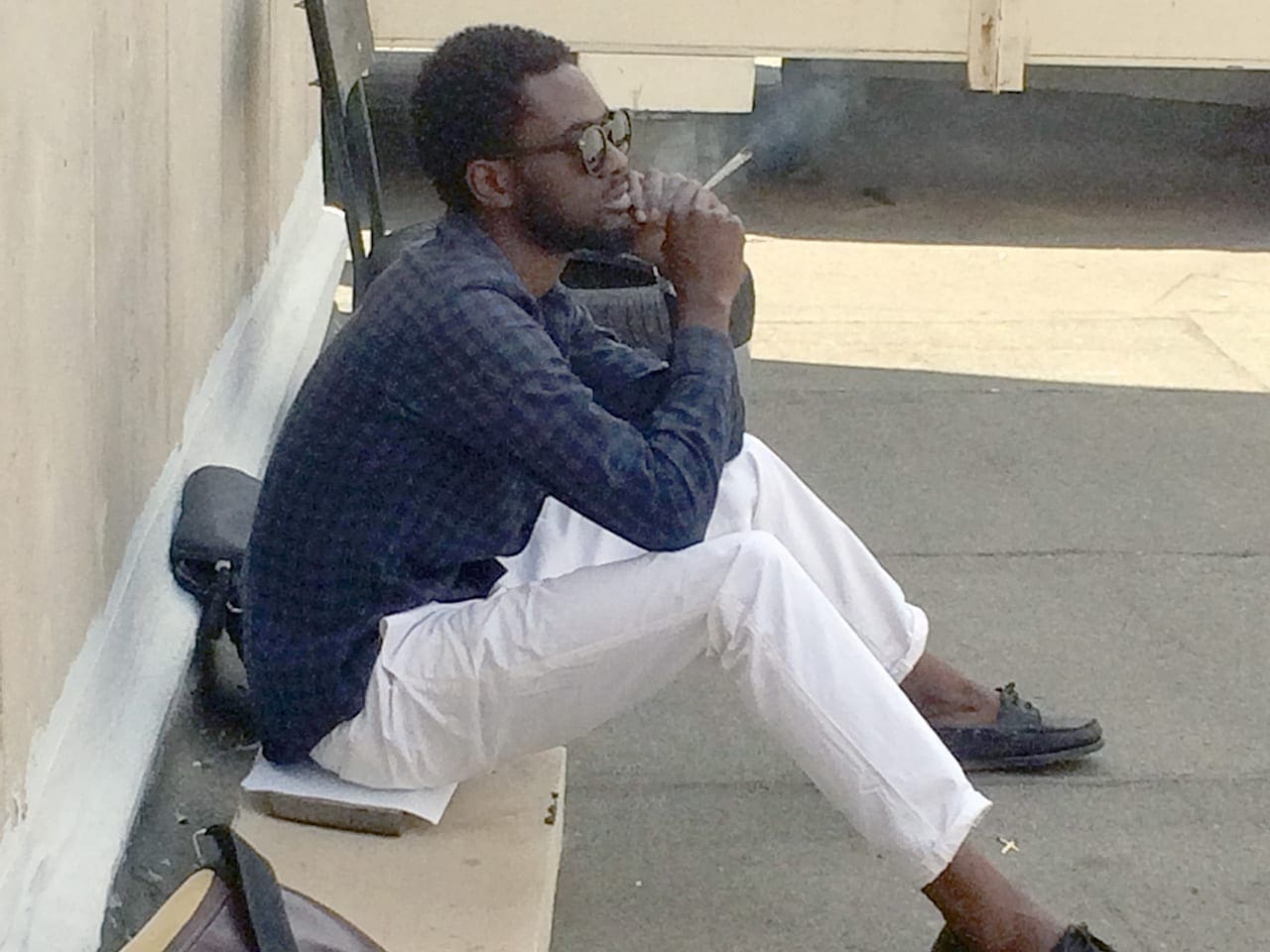Santa Cruz fires: a journalist’s journey from witness to wildland firefighter
Arriving at the firefighters’ camp in Santa Cruz felt like stepping into a world stripped down to survival. Comfort did not exist. A single makeshift shower served hundreds. Mattresses piled in one corner of the main tent provided scant relief, as firefighters collapsed side by side, snatching a few hours of rest before confronting the flames again. Their soot-covered faces told stories of exhaustion and unyielding determination. Standing among them, I felt an overwhelming sense of purpose—I was exactly where I needed to be.
- 1 year ago
December 8, 2024
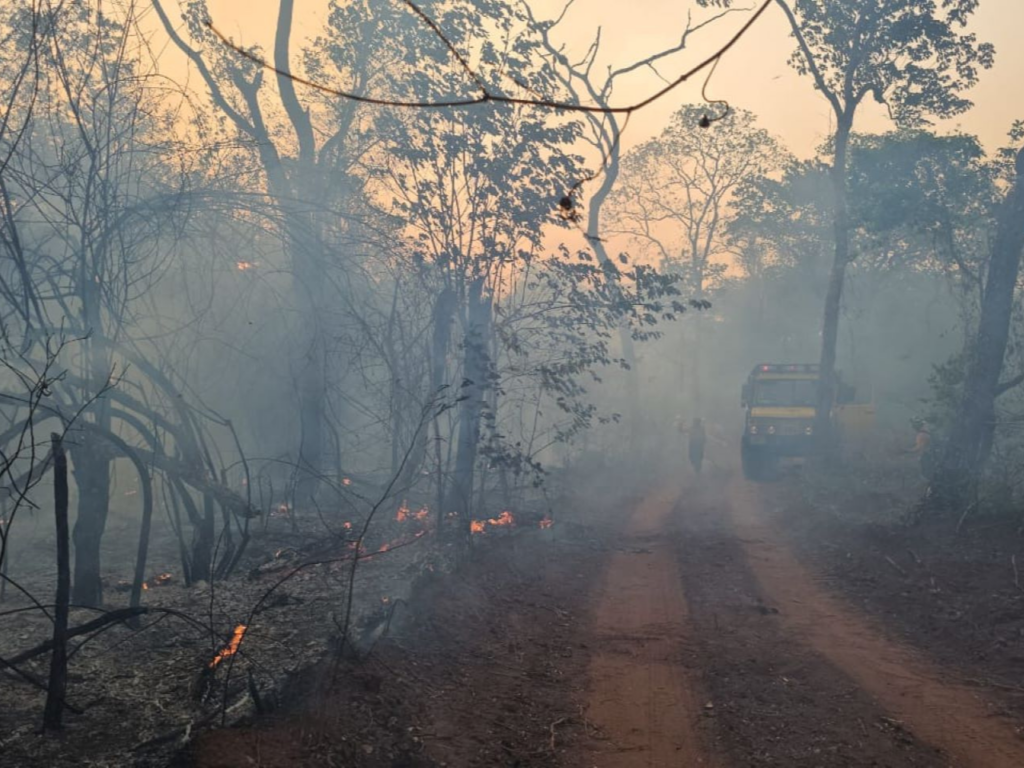
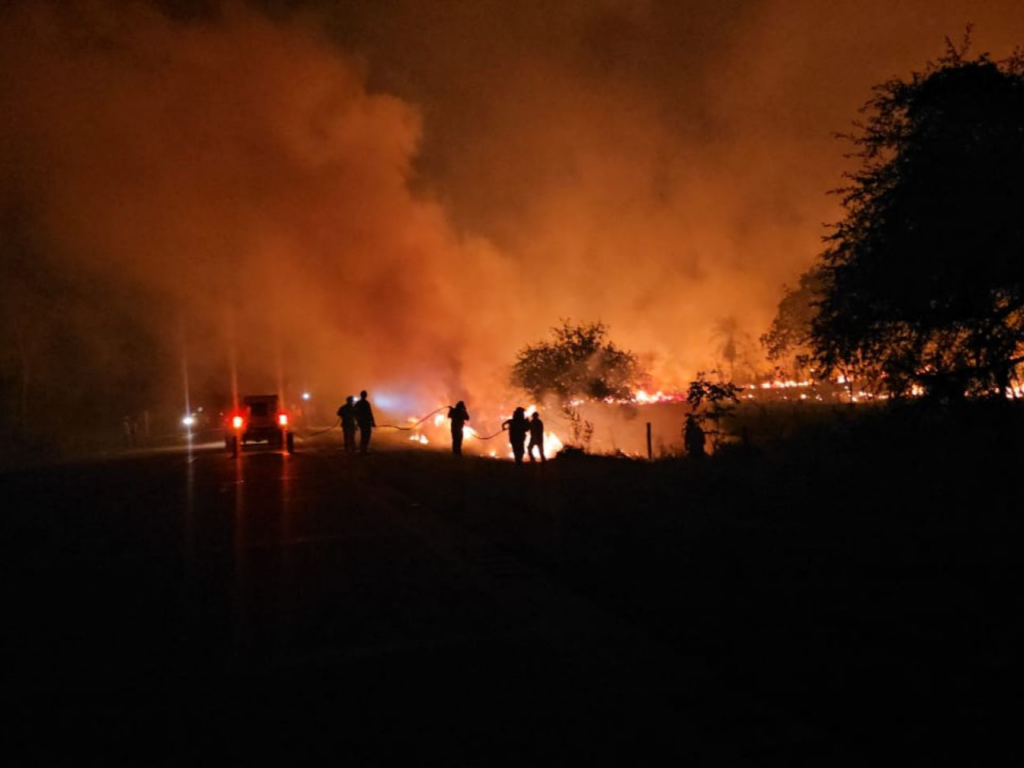
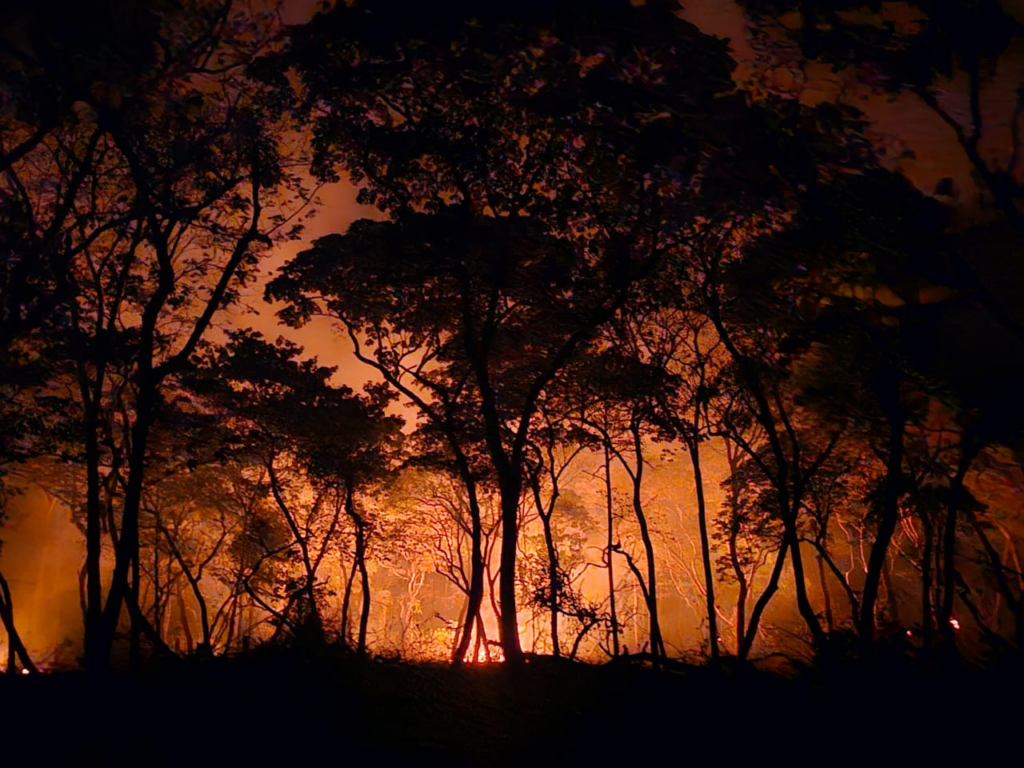
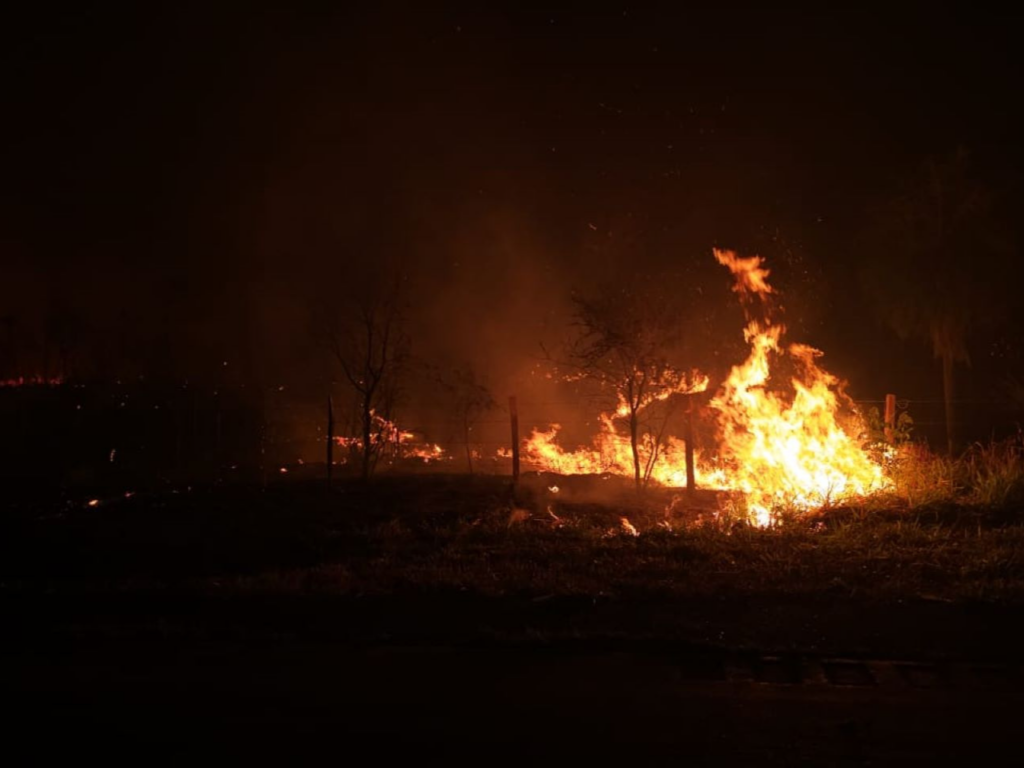
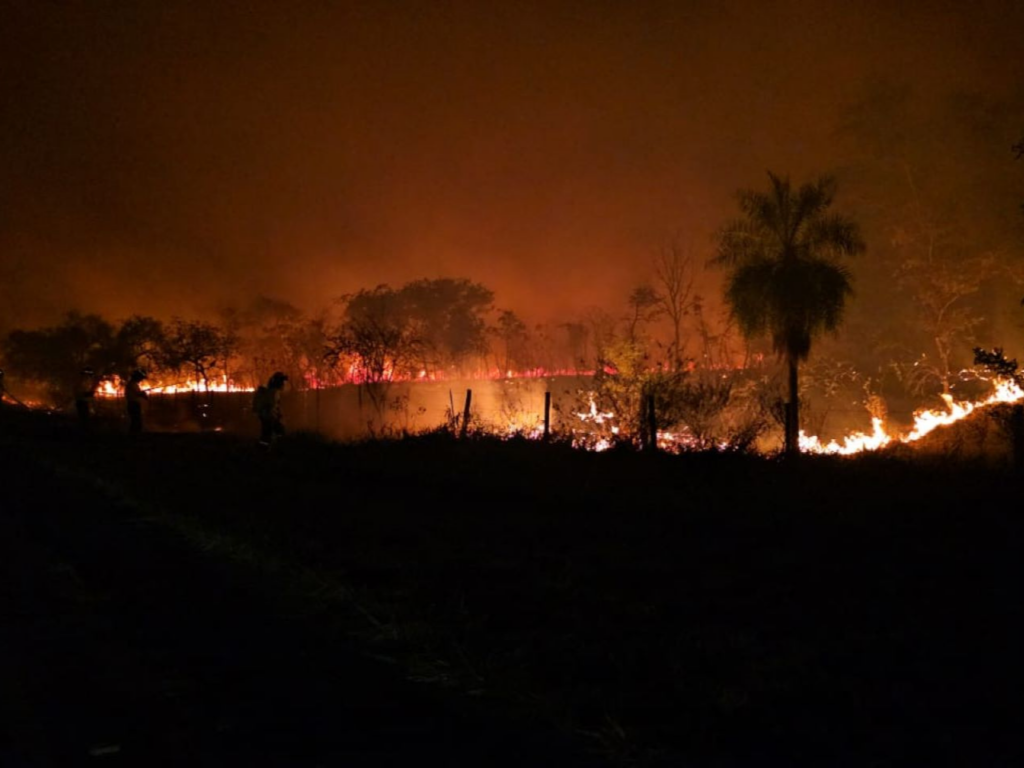
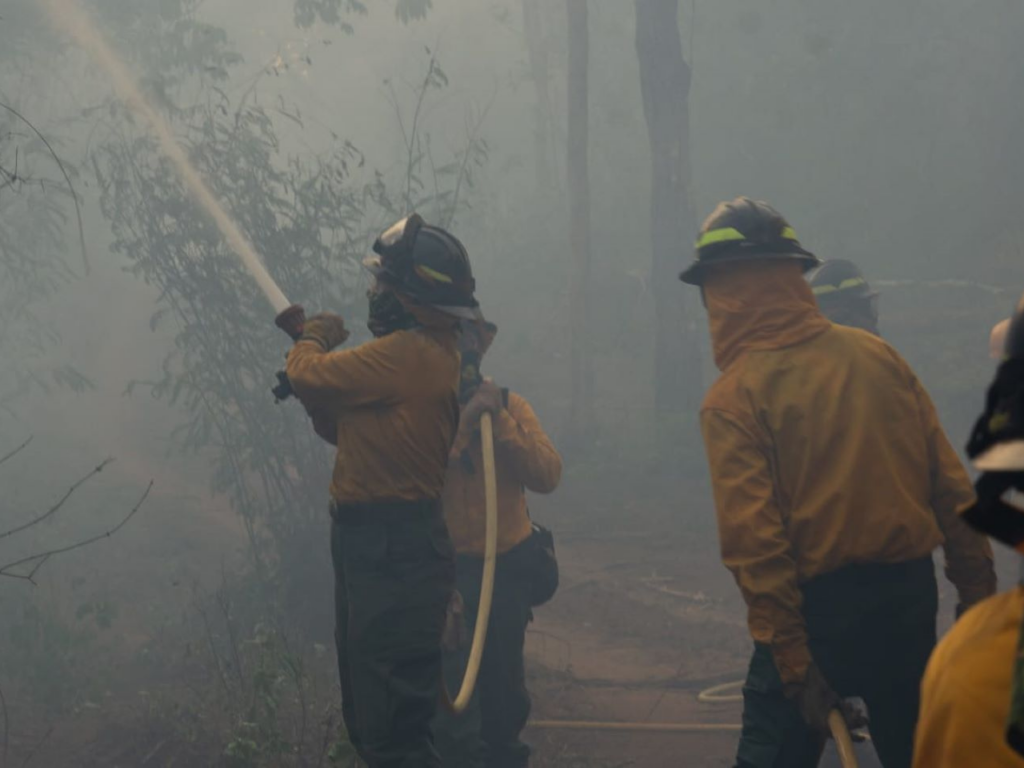
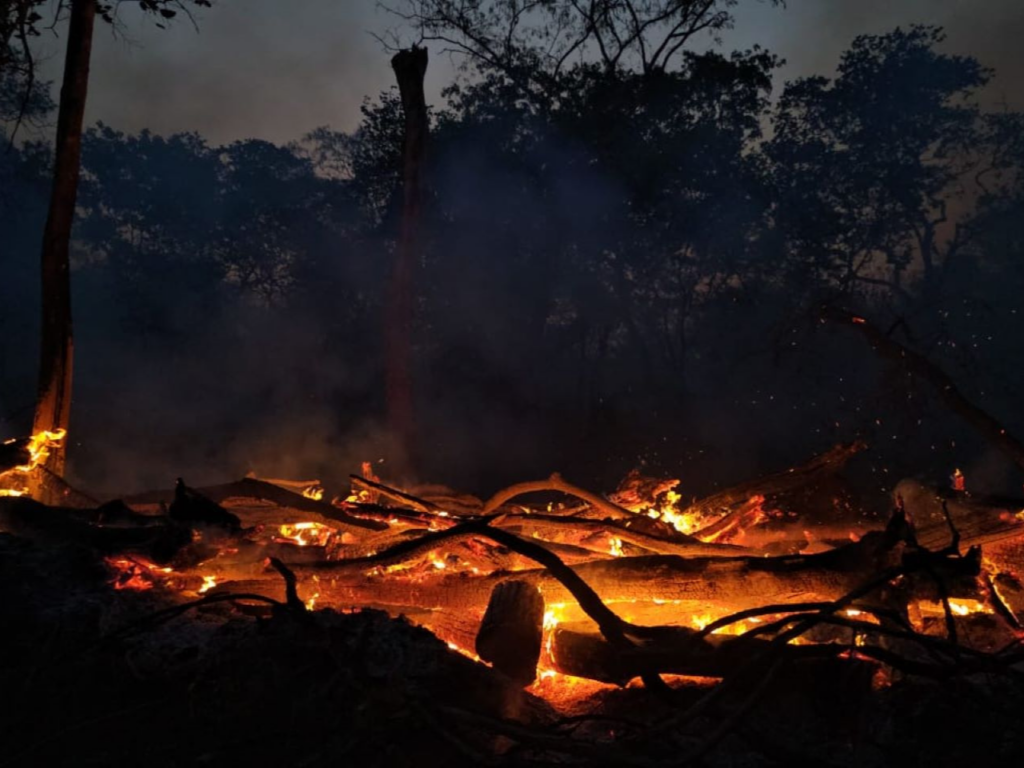
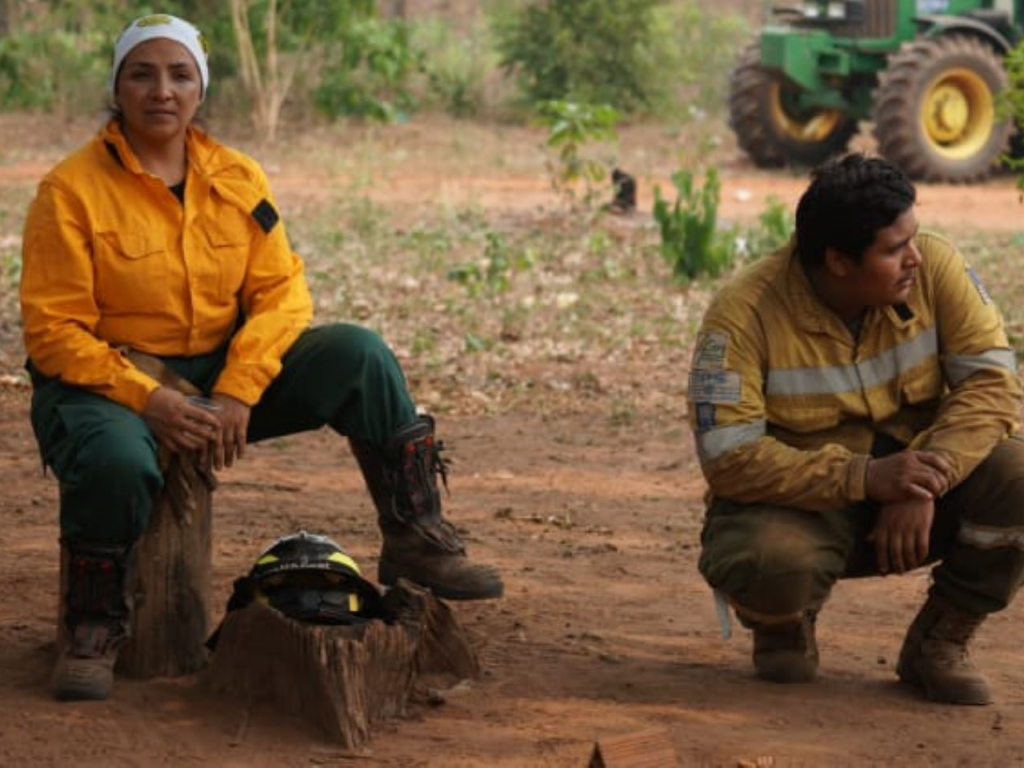
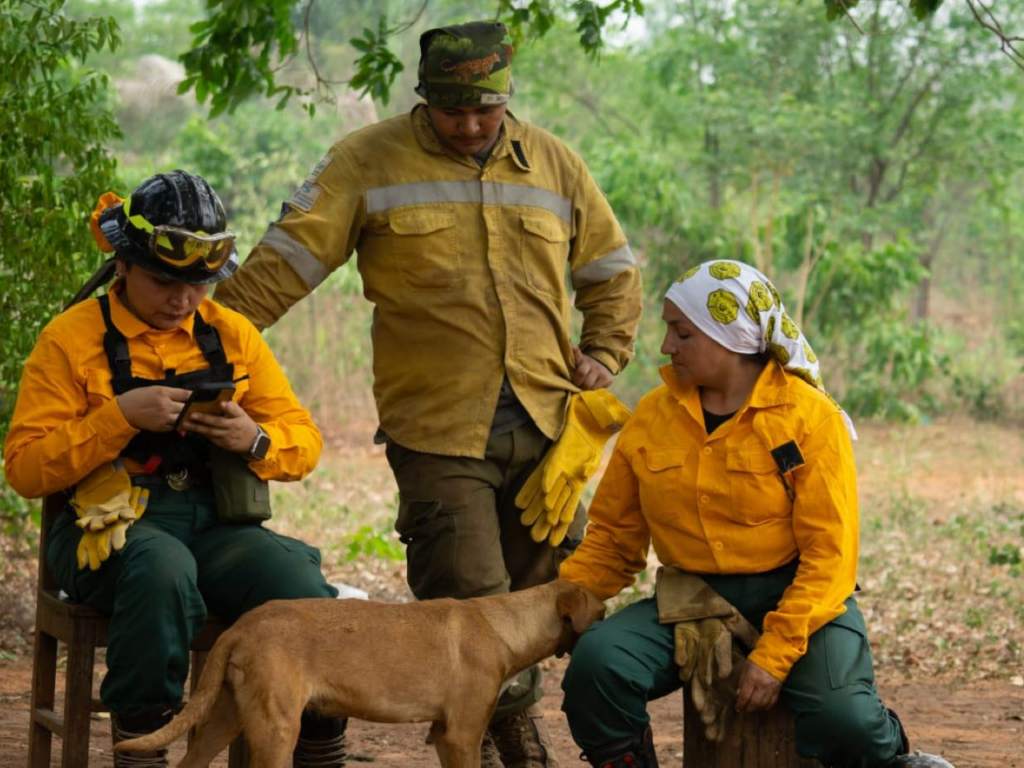
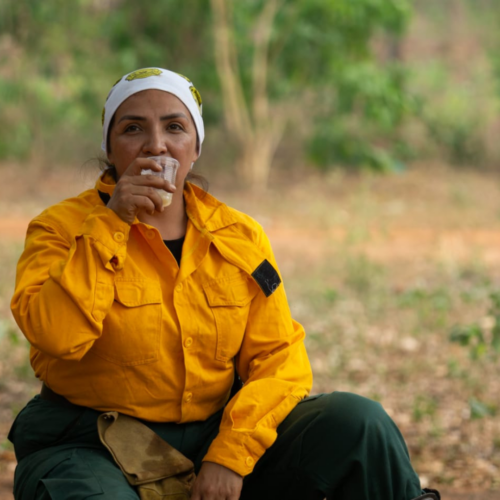
SANTA CRUZ DE LA SIERRA, Bolivia — My work often brought me to the heights of La Paz, a city where forests are rare and nature seems to battle for every inch against concrete. Beneath the dry air and endless blue sky, I observed the world from behind a lens, capturing stories in images.
However, in 2019 when news of the Santa Cruz fires echoed. The flames devoured Bolivia’s green lungs, and a calling to act ignited within me. Determined, I picked up my camera and headed toward the fire zones. No longer would I only document but bear witness to the devastation firsthand.
Read more environment stories at Orato World Media.
Stepping into Bolivia’s fires
Facing the fire for the first time felt like stepping into a living nightmare. Flames engulfed the forest under an oppressive orange sky, and heat punished everything in its path. As I ventured deeper, the soles of my boots melted on glowing embers that formed a searing carpet beneath my feet. Lacking proper equipment, I relied on my bare hands to toss sand and carry water. Smoke tore through my lungs, turning every breath into a battle. The relentless roar of the flames drowned out all other sounds, but I forced myself to keep moving. Each step forward, alongside others, became an act of sheer will, driven by a shared determination to resist the destruction.
When I arrived at an animal shelter, the eerie silence struck me even harder than the heat. A place once alive with birdsong and the hum of jungle life now lay buried in ash. Rescued turtles huddled in makeshift pools, their sluggish movements highlighting the devastation surrounding them. Their resilience was humbling, a stark reminder of how fragile all life is in the face of such disasters.
I encountered communities shattered by the flames—people who had lost homes, crops, and lifetimes of effort. My camera quickly evolved into a tool of action. I recorded as I delivered water, captured images while helping reorganize spaces, and documented the human and environmental toll of the fire. Every click felt like a promise to preserve these moments, ensuring the world could not ignore what was happening.
Joining the firefighters: “My heart urged me to act”
At one point, while filming firefighters battling the flames, I felt the camera weigh me down. My heart urged me to act, so I set it aside and joined the fight. With my bare hands, I threw sand onto smoldering embers, the suffocating heat pressing against my skin like a constant warning. For the first time, I felt the satisfaction of doing rather than observing. My hands, blackened and burning from direct contact with the scorched earth, became a symbol of resistance and resilience.
In that moment, I realized I had crossed a boundary. I was still a journalist, but I was also a mother, a woman, and part of a world crying out for action. My role could no longer remain confined to documentation; I had to act, to defend what could still be saved.
That first night felt like stepping into hell. Flames tore through everything in their path, leaving behind a crunching carpet of embers beneath our feet. The air hung thick with ash and smoke, each breath scraping my throat like a punishment. Every step forward was a deliberate choice: retreat to safety or push deeper into the inferno. Watching the forest vanish in an instant made retreat impossible. The despair of witnessing nature’s destruction forced me onward.
Dawn exposed the full scope of the tragedy. The once-vibrant forest had become a graveyard of blackened trees and barren land, shrouded in an oppressive silence. Life had been reduced to ash. Standing amidst the smoldering ruins, I felt nature’s grief—not only for the lives lost but for the indifference that had enabled such devastation. I sat on the hot ground, overwhelmed, as tears fell. The enormity of what we had lost made me feel small and powerless in the face of such relentless destruction.
I was exactly where I needed to be
Arriving at the firefighters’ camp in Santa Cruz felt like stepping into a world stripped down to survival. Comfort did not exist. A single makeshift shower served hundreds. Mattresses piled in one corner of the main tent provided scant relief, as firefighters collapsed side by side, snatching a few hours of rest before confronting the flames again. Their soot-covered faces told stories of exhaustion and unyielding determination. Standing among them, I felt an overwhelming sense of purpose—I was exactly where I needed to be.
My camera, usually a powerful storytelling tool, seemed powerless in the face of such devastation. Yet, I kept recording. Someone had to document this, to ensure the world understood the magnitude of what was unfolding. The embers of the fire were fading, but the fight to preserve what remained of our land burned fiercely within me.
One of my first missions took me to the children of a community directly in the fire’s path. Amid chaos and fear, we found a moment to teach them about caring for their land. Using empty bottles and debris, we explored what could safely return to the earth and what could not. At the end, I playfully dubbed them the fire department, dousing them with a bucket of water and naming them the guardians of their home. Their laughter and tiny hands, held high as if grasping the future, offered a glimmer of hope.
That hope, however, was painfully short-lived. Days later, the flames roared back, devouring the homes of those same children who had laughed and learned with me.
Millions of hectares had been reduced to ash, leaving Santa Cruz engulfed in smoke
When I heard the news, a gut-wrenching emptiness overtook me, as if something inside me had broken. Had I done enough? Guilt gnawed at me, the memory of their hopeful eyes clashing with the devastating reality of their loss. The fire had not just destroyed forests—it had devoured dreams and futures.
As I tried to find solace, the weight of our collective frailty in the face of such a ruthless force became unbearable. The fire was not just a natural disaster—it was a reminder of how much we stand to lose when we fail to protect what truly matters.
It all began in June, when fires first ignited in Otuquis National Park near the Brazilian border. What started as a localized incident quickly spiraled into an environmental catastrophe. By September, millions of hectares had been reduced to ash, leaving Santa Cruz engulfed in smoke and an unrelenting environmental crisis. I watched helplessly as the flames consumed everything—forests, homes, and entire lives. Those months felt like an endless battle, each day a new chapter in a nightmare that changed us all forever.
My journey to the camp in Roboré felt grueling, taking over 24 hours through intense heat, exhaustion, and even stopping to assist at accidents along the way. When I finally arrived, the gravity of the situation hit me like a blow. The fire raged on all sides, consuming hectares of forest with an almost predatory ferocity. At dusk, the air filled with embers drifting like ominous warnings, while the sky glowed a suffocating orange.
No amount of mental preparation could have readied me for the devastation I witnessed
This fire was not like any I had seen before—it was a monster fueled by years of neglect and indifference. No amount of mental preparation could have readied me for the devastation I witnessed: trees reduced to skeletal ash, animals fleeing aimlessly, and a haunting silence where vibrant life once thrived. It was a sobering confrontation with the scale of destruction, a reminder of what was at stake and how much we had already lost.
From the very beginning, organization was crucial. We divided into teams to try and halt the fire’s relentless advance. One critical front was in the Tucavaca mountain range, where flames formed a double front, cutting off roads and threatening entire communities. Alongside firefighters from Spain and Ecuador, we worked tirelessly to trace defensive lines stretching hundreds of meters—an almost impossible task in the suffocating heat. The sound of shovels scraping earth, shouted orders cutting through the smoke, and the desperate faces of locals, including children barely strong enough to carry buckets of water, filled the scene. It was an uneven fight, but none of us dared give up.
The swirling fires were a terrifying spectacle, columns of flames moving with an almost sentient fury as they devoured everything in their path. The scene was apocalyptic. The heat was so oppressive that it felt like the air itself was solidifying, making every breath a struggle. Even through gloves, my hands burned from the relentless handling of sand and tools. One particularly gut-wrenching moment was discovering a charred armadillo beside an empty nest—a grim reminder that we weren’t just losing trees but also the lives that depended on them.
Doubt whispered in the back of my mind: could we stop this?
Our hands, stiff from gripping shovels, and our feet, blistered from melted boots, carried the marks of walking on embers. The fire tested our endurance, leaving blackened scars on the earth where vibrant life once flourished. It was a battle not only against flames but also against the creeping despair that threatened to consume us.
In the early hours of the morning, with only three women and two men left in the camp, a community member rushed in with urgent news: flames were closing in on the home of an elderly couple. Exhausted from days of firefighting, we had just shed our suits, hoping for a moment of rest. But there was no time. Grabbing makeshift hats and shovels, we plunged into the darkness, guided only by the ominous glow of the fire—a relentless, consuming force. The air clawed at our throats, and the thick smoke reduced our world to mere meters.
The fight lasted through the night. The fire roared like a feral beast, each falling spark a warning of how swiftly destruction could strike. We hurled sand with bare hands, dug makeshift fire breaks, and shouted instructions over the chaos of heat and smoke. Doubt whispered in the back of my mind: could we stop this? Could we save the house, which now felt like the embodiment of everything we were fighting to protect?
Fatigue wasn’t an option. My legs quaked, my throat burned, and the heat pressed against my skin like a constant threat. But I kept going, driven by the belief that every effort, no matter how small, held meaning. In those moments, survival wasn’t just an act—it was defiance, a refusal to let the flames claim everything.
Roboré: a place that felt like the threshold of hell
As dawn broke, we gathered in silence. The house stood intact—a fragile miracle amidst a landscape reduced to ash and rubble, a barren desert where life once thrived. I sank to the ground, drained, staring at that small home as if it were the only evidence that our struggle had meaning. Around me, my companions collapsed as well, their faces blackened with smoke and etched with exhaustion and relief.
We had won this battle, but the cost was undeniable. In that moment, I realized we were not just fighting the flames—we were battling oblivion, indifference, and our own vulnerability. For if we fail to save what truly matters, what remains of us?
One moment etched into my memory happened on the road to Roboré—a place that felt like the threshold of hell. Traffic was paralyzed, trapped between two raging fronts of flames devouring both sides of the road. From the horizon, fiery whirlwinds rose with a terrifying ferocity, each a spinning column of destruction, scattering embers and filling the air with the acrid stench of burning wood and something more profound, almost sinister. As we moved cautiously, the oppressive heat wrapped around us, and the forest seemed to crumble beneath a sky streaked with orange and black.
Amid this chaos, a small wild rabbit emerged, staggering on burned paws, its eyes reflecting a terror no living being should endure. A colleague gently picked it up and carried it to our makeshift veterinary station. Despite our best efforts, we could not save the rabbit. Holding its lifeless, fragile body in my hands, I felt an overwhelming grief. The group stood in heavy silence, mourning as if we had lost something irreplaceable.
I would keep fighting, no matter how much the fire took from us
On my way back, a child caught my eye, standing on a mountainside, pointing to the fire consuming his world. “Will my house stay?” he asked, his voice trembling and broken. I could not bring myself to answer, knowing the truth was too devastating to share.
That night, as I sat staring at the horizon where flames continued to burn in the distance, I made a promise to myself: I would keep fighting, no matter how much the fire took from us. Even amidst so much loss, every life saved, every house defended, every smoke-free dawn was a victory—a reminder that our effort, though exhausting, was never in vain.
The nights felt endless, with suffocating heat wrapping everything in an oppressive grip. Passing through dense smoke, I felt the air clawing at my chest, stealing my breath. One fateful day, after more than 24 hours without rest, my body finally gave out. I was rushed to a makeshift hospital, where hours of care managed to stabilize me. But I couldn’t stay still. As soon as I could stand, I returned to the front lines. I knew that every moment mattered, that the fire would not wait, and that my place was still there, fighting alongside the others.
As the flames slowly receded under our relentless efforts, we looked up to see the sky turning gray. Then, the miracle happened: an unexpected storm swept in. The first drops fell like a gentle balm on our soot-streaked faces, and soon, a downpour extinguished the remnants of the inferno. It felt as though nature, in her wisdom, was grieving alongside us.
A storm extinguished the fire, but the is far from over
Within minutes, the storm transformed the valley. What had been a suffocating haze of smoke turned into a field of mud and ash. Soaked to the bone, we stood motionless. Someone broke the silence with a nervous laugh, which quickly grew into a collective relief. In that moment, I realized firefighting entails protecting what remains of humanity. The rain became more than water; it was a reprieve, a promise that nature, despite her suffering, still responds to those who fight for her.
The rain extinguished the fire, but the work was far from over. We moved swiftly to ensure no embers remained to reignite the destruction, transitioning to aid the devastated communities. Delivering food and medicine, we witnessed the staggering losses firsthand. The storm had given us hope, but rebuilding their lives would take much longer.
Reflecting on those days, I see that fires are not just visible enemies; they reveal negligence, hidden agendas, and a society too often complacent. My time in Santa Cruz was more than a fight against flames—it was a deeper struggle to preserve what makes us human. Though the scars of that inferno remain, so does the certainty that we are not alone, and that while destruction may consume, renewal is always possible.
Being a wildland firefighter is about more than facing fire; it is about enduring the invisible scars it leaves behind. Each mission is a reminder of life’s fragility and nature’s vastness. Despite the exhaustion and loss, moments of profound hope make the fight worthwhile. This journey transformed me forever, pushing me to act, to protect a world that still holds something sacred. In every tree defended, in every life saved, I found a reflection of who we must strive to be: guardians of an earth calling for care and respect.



